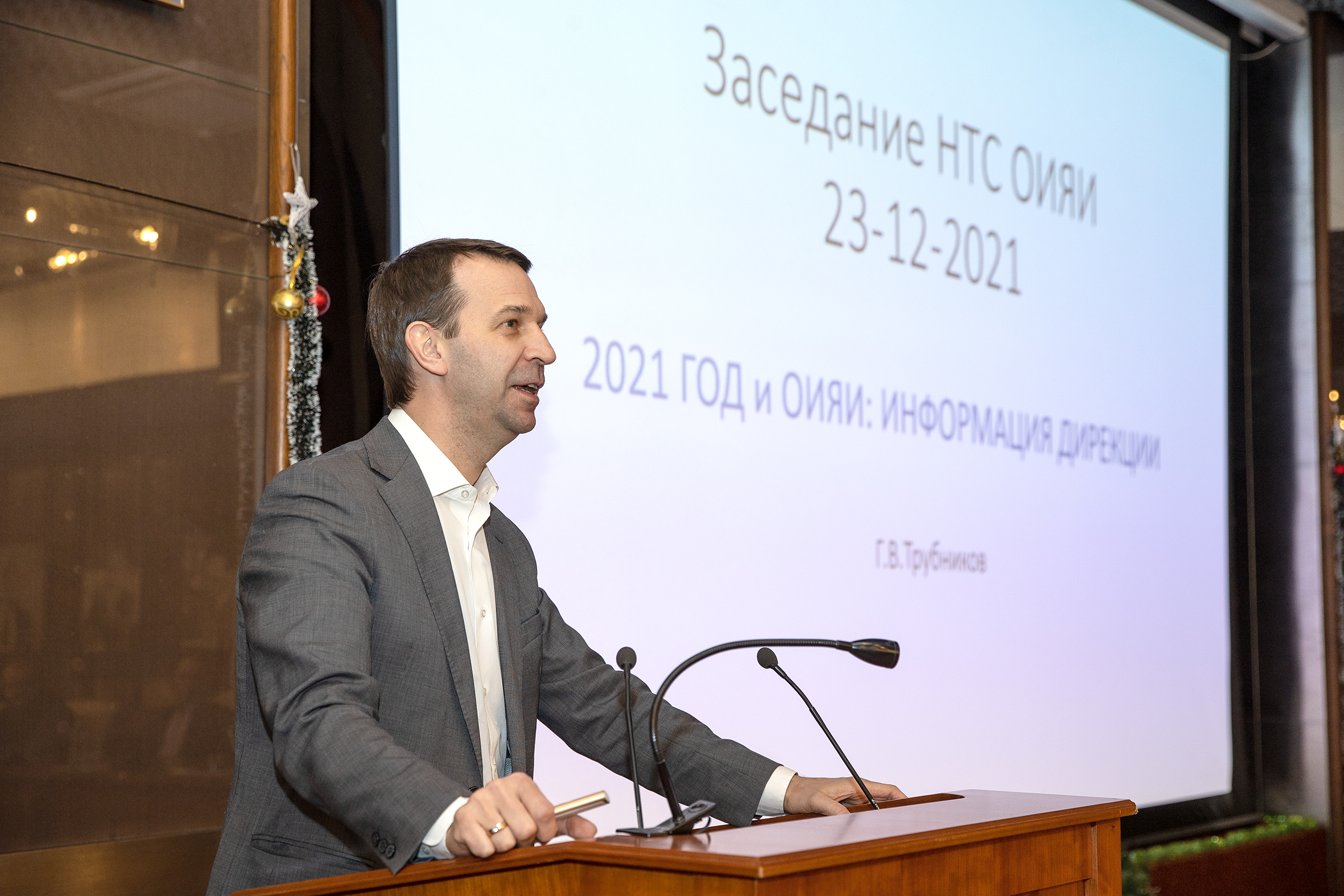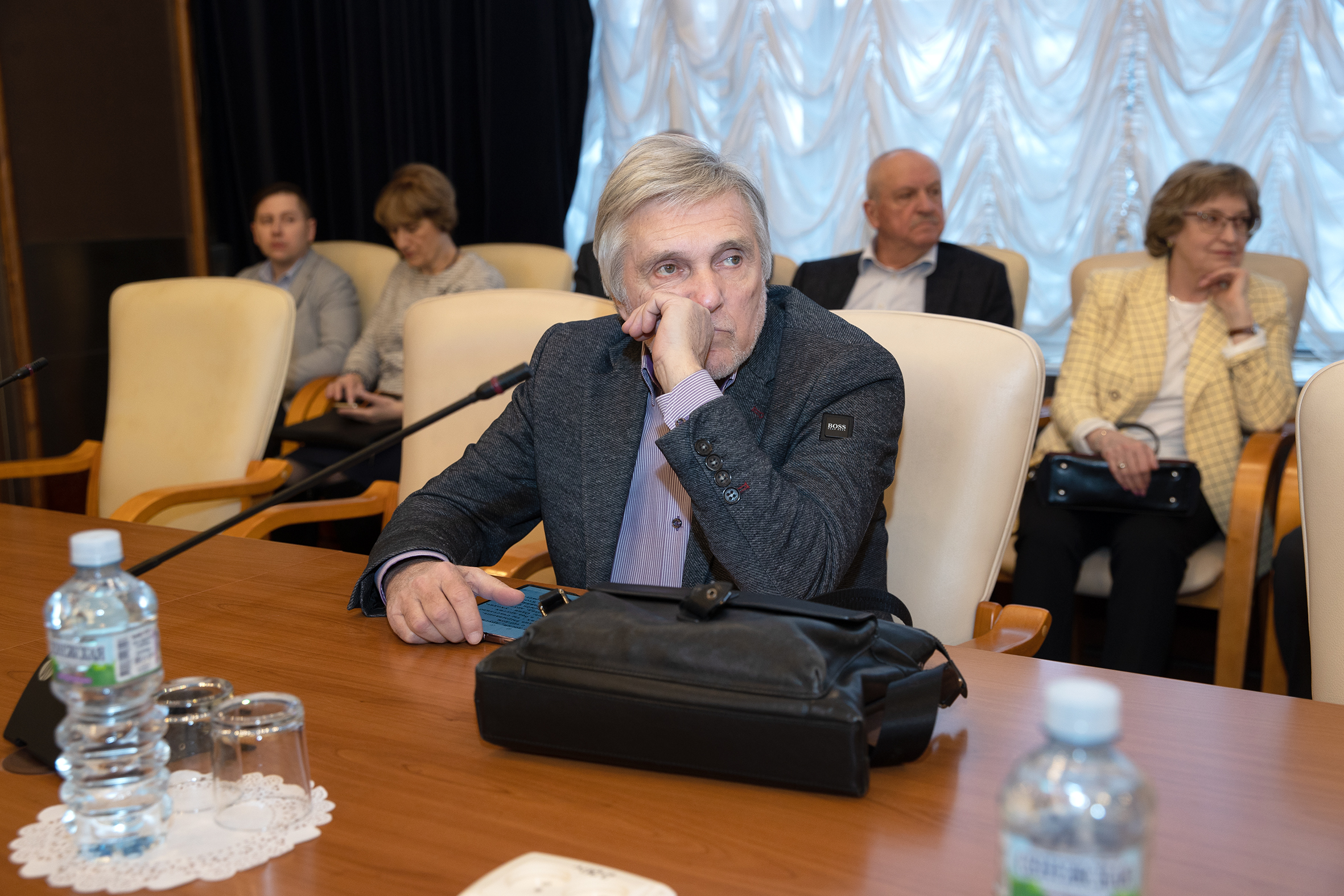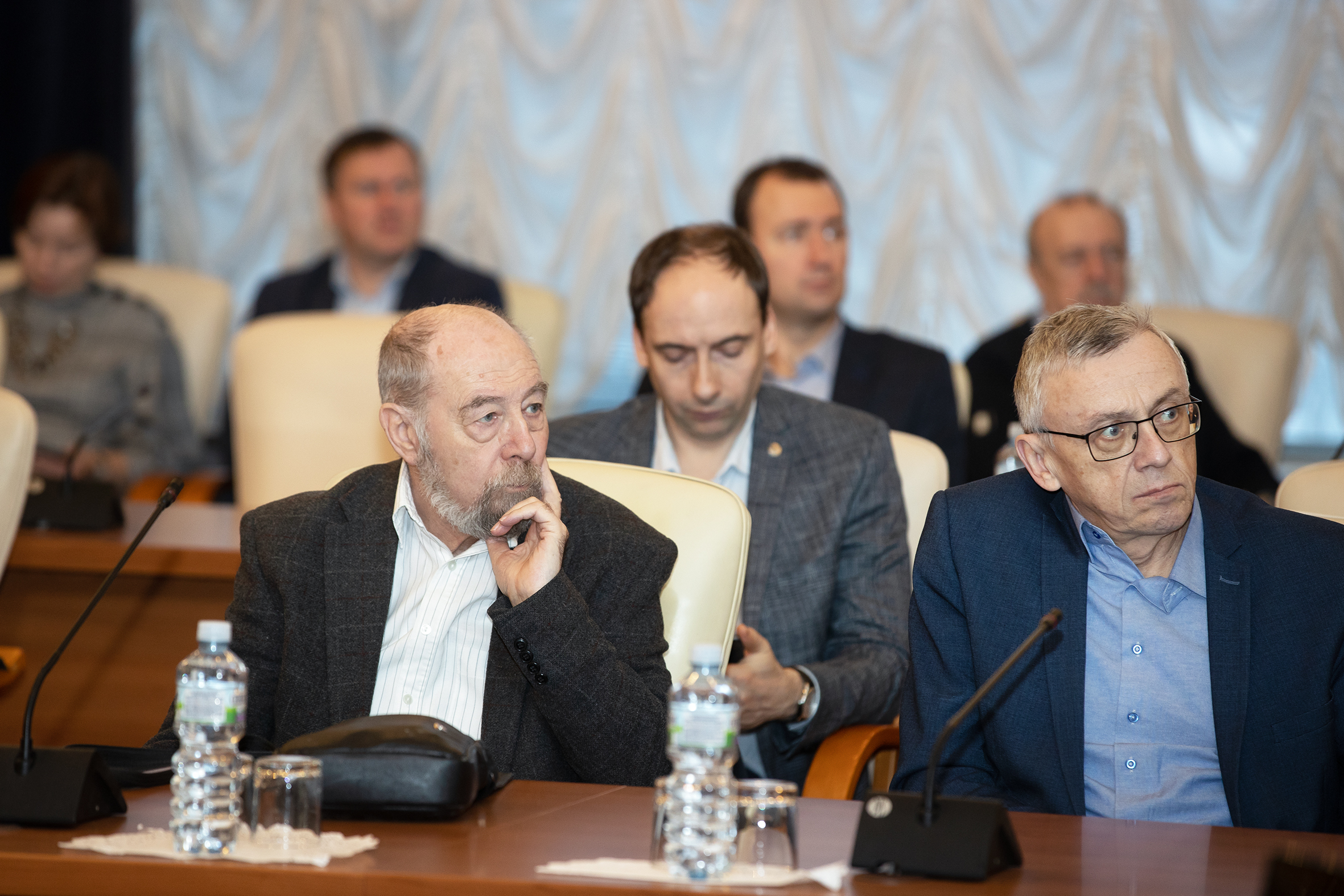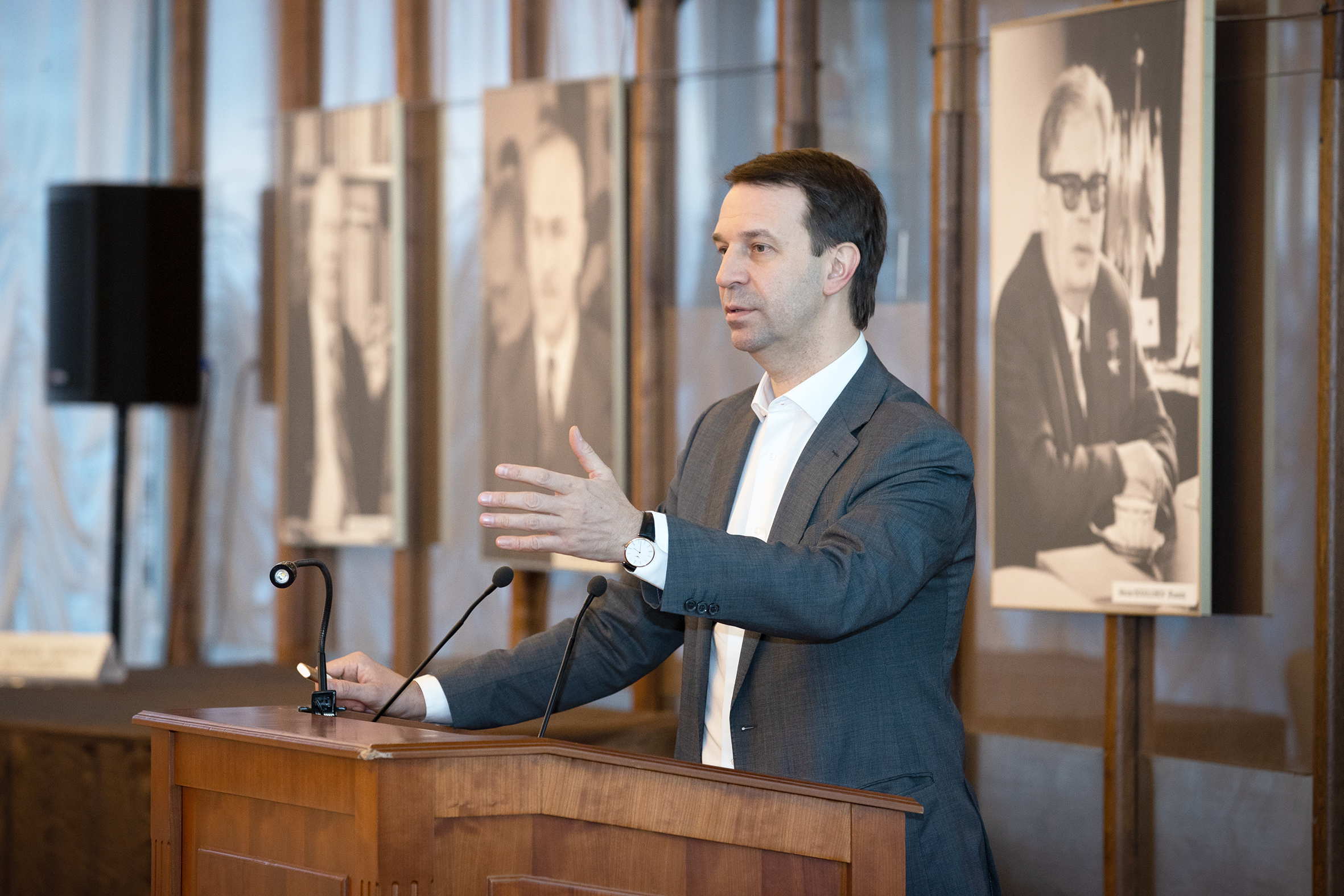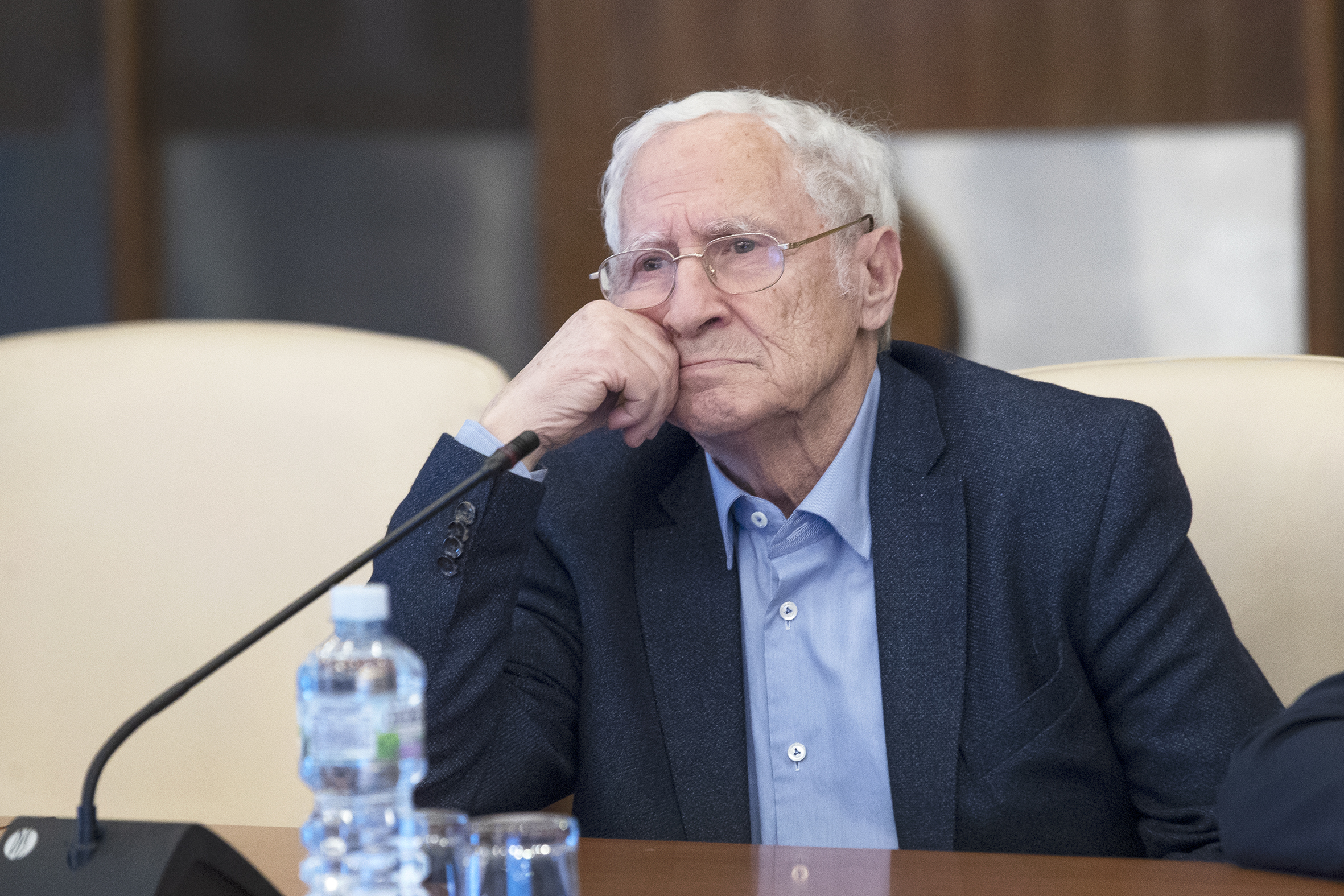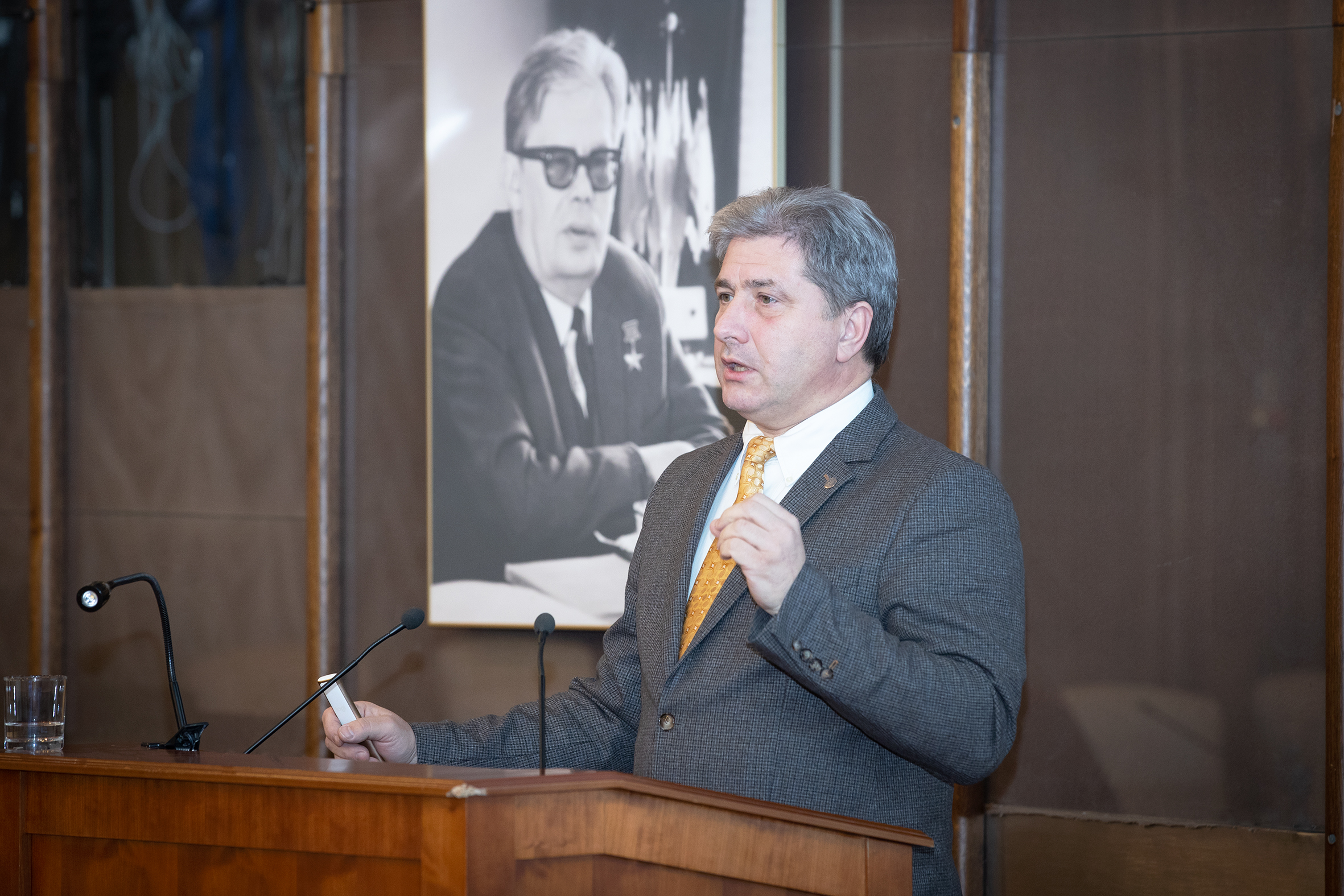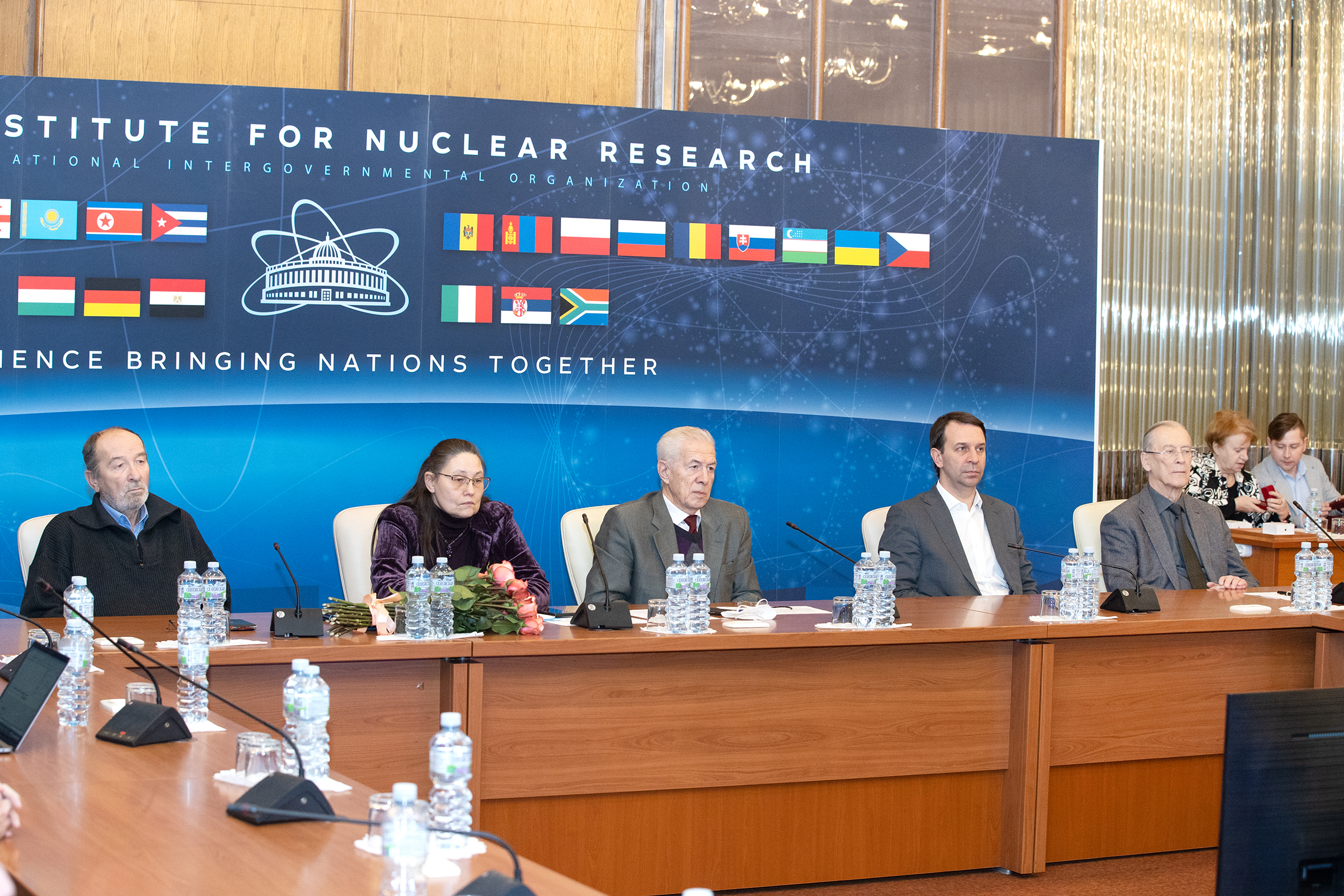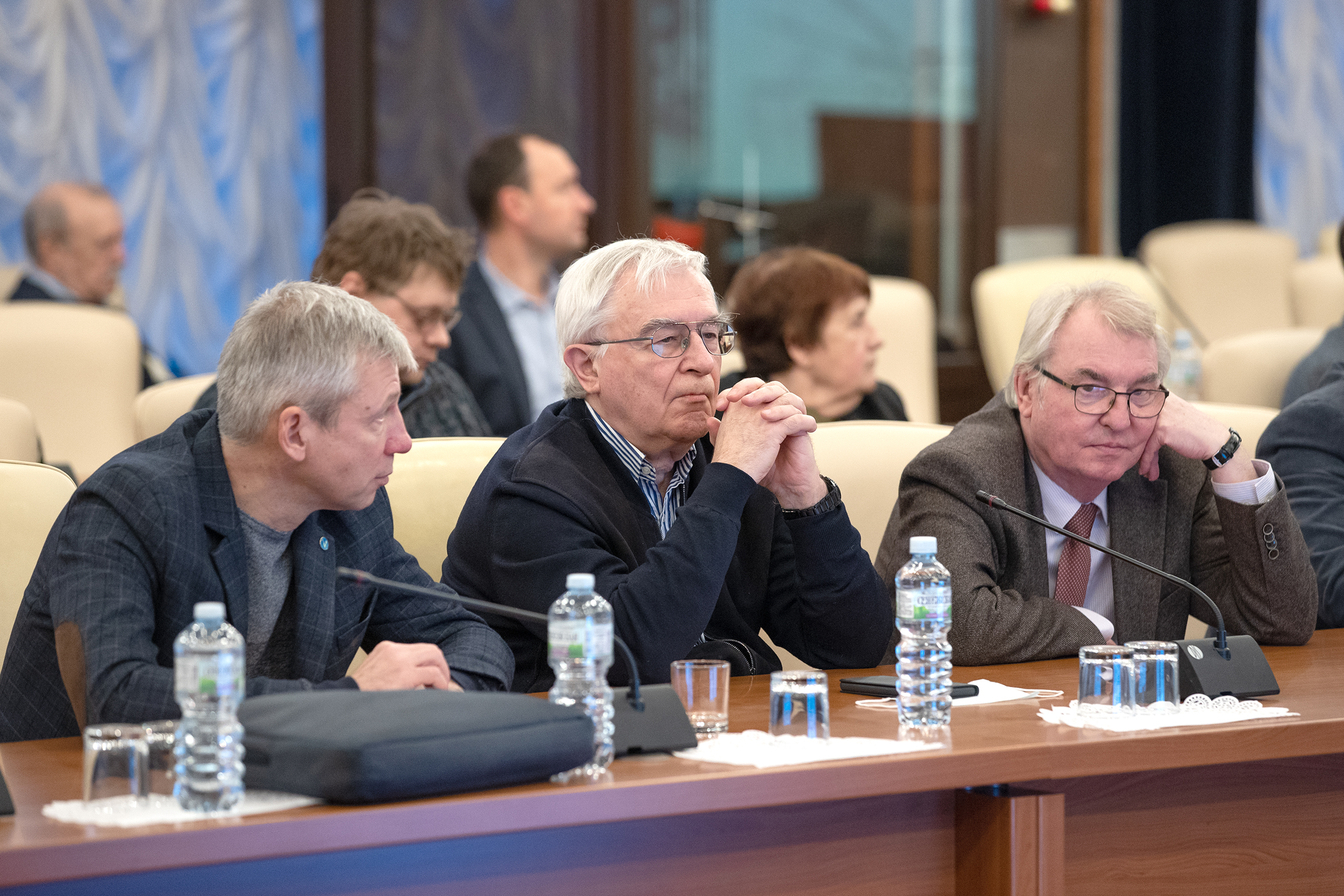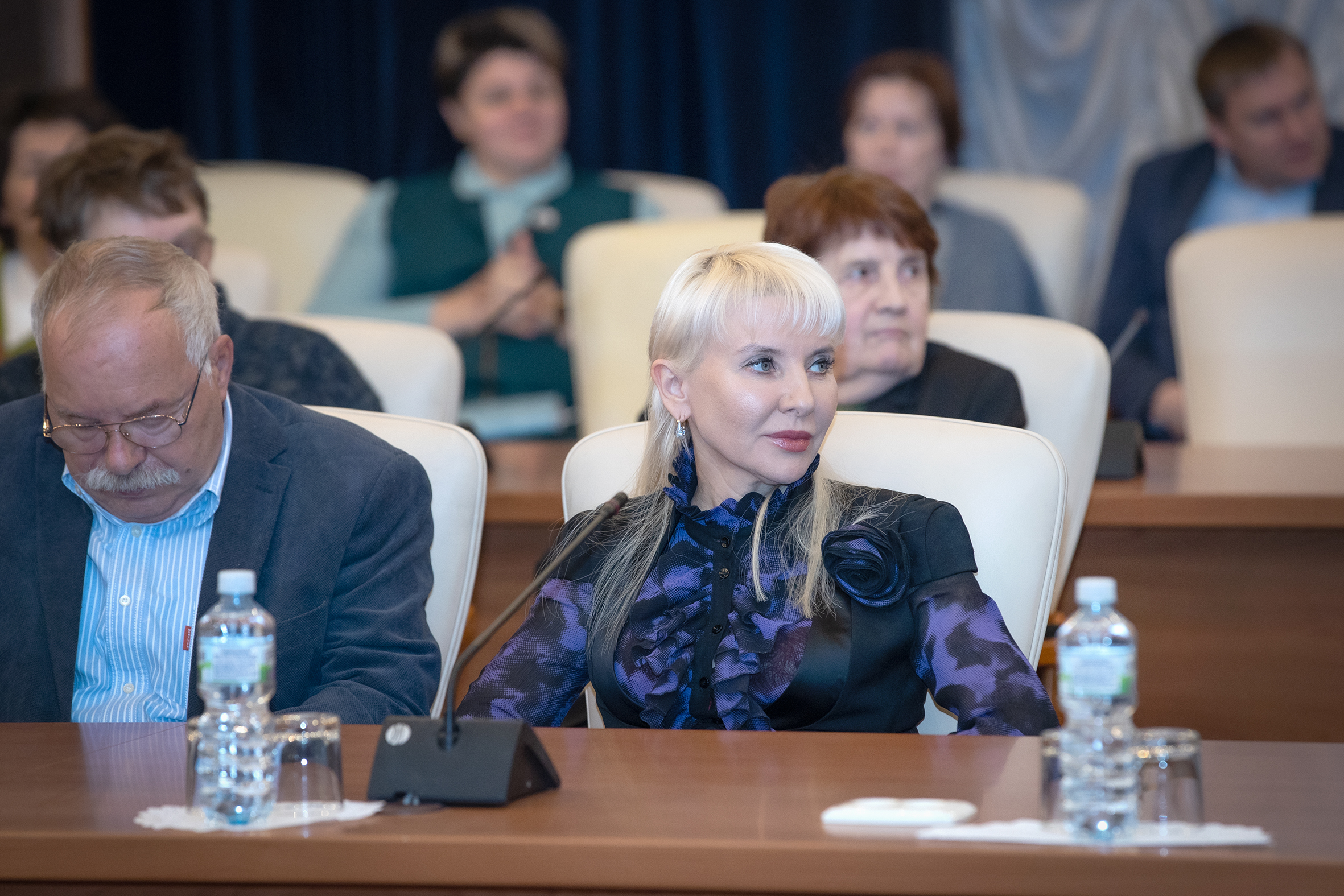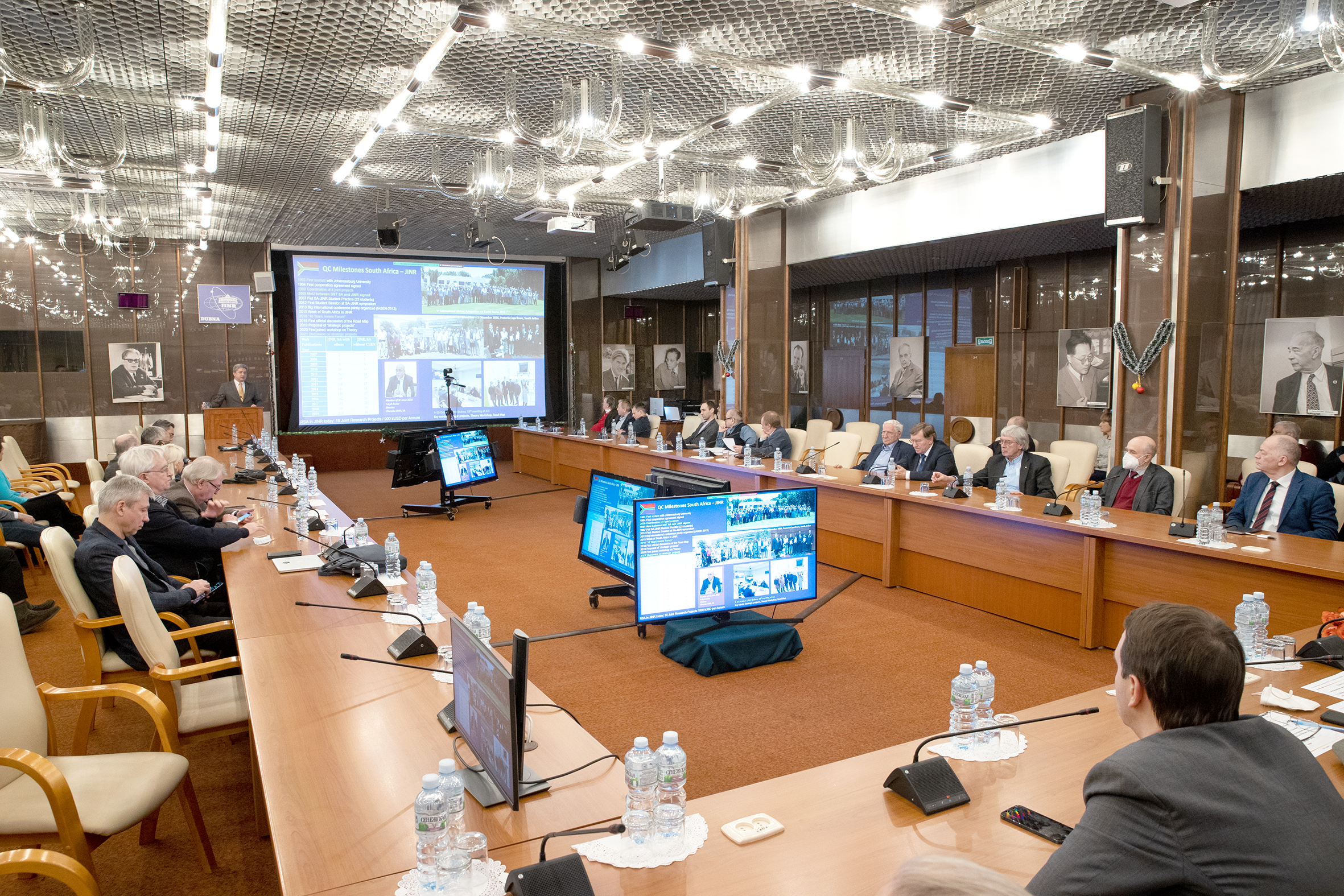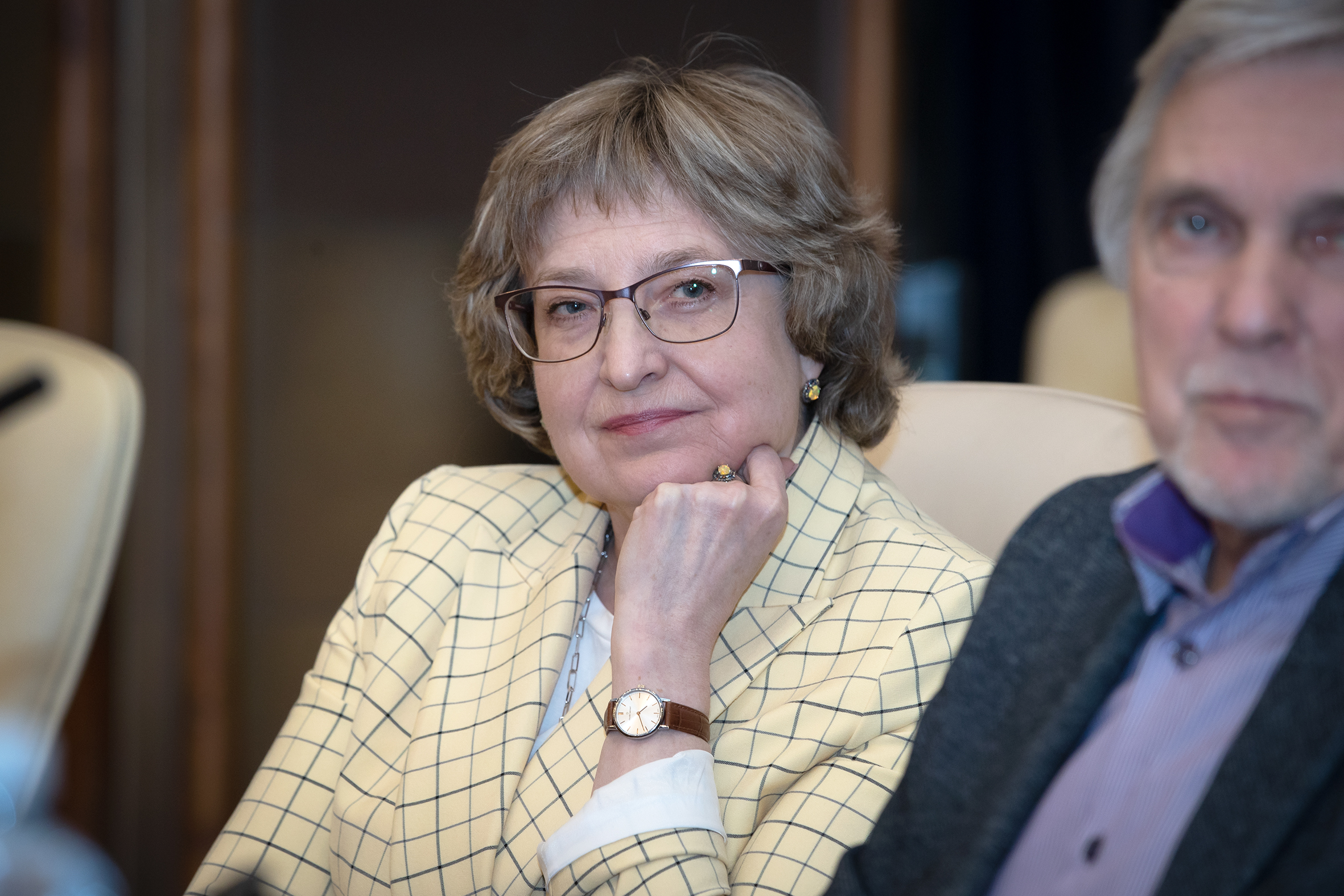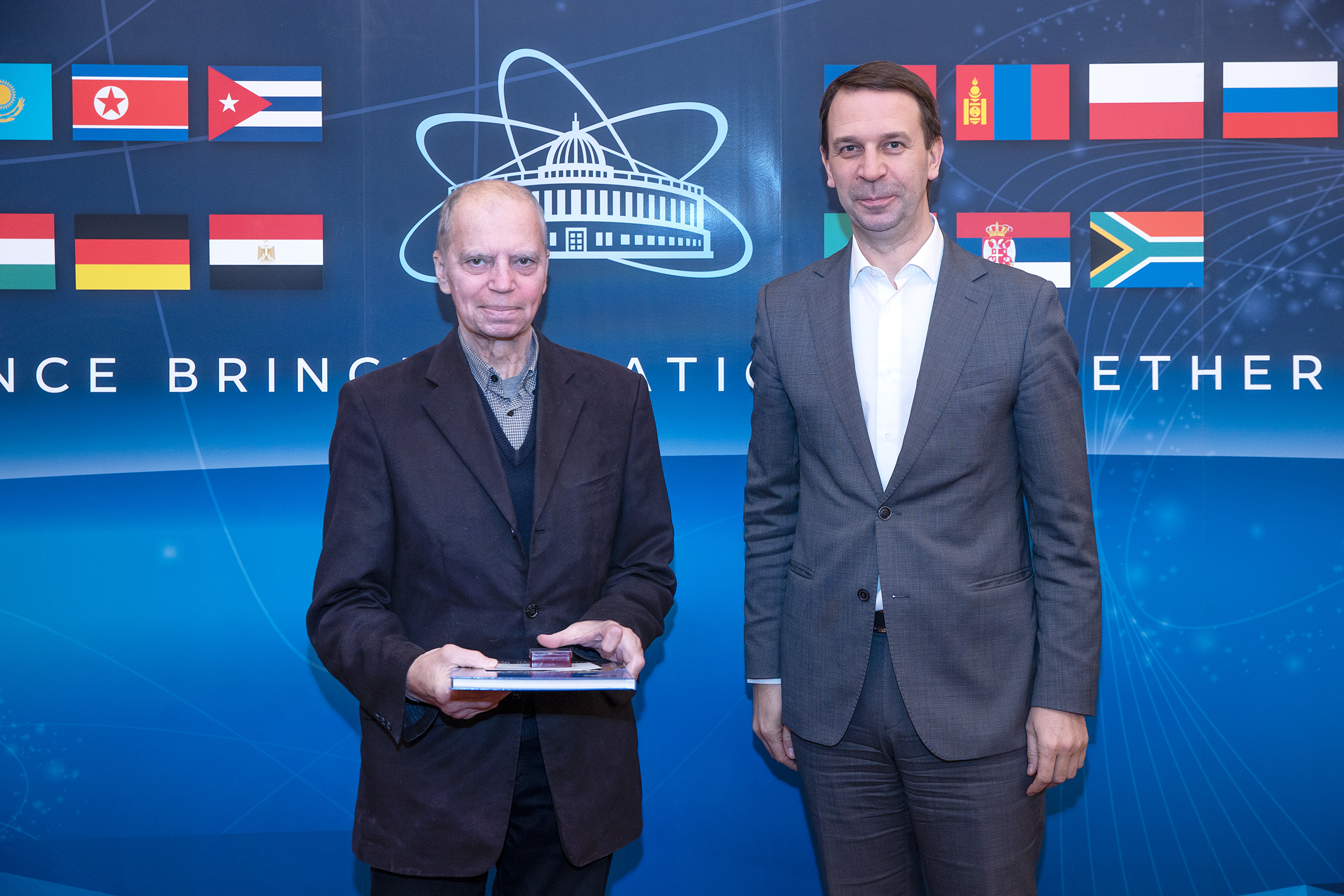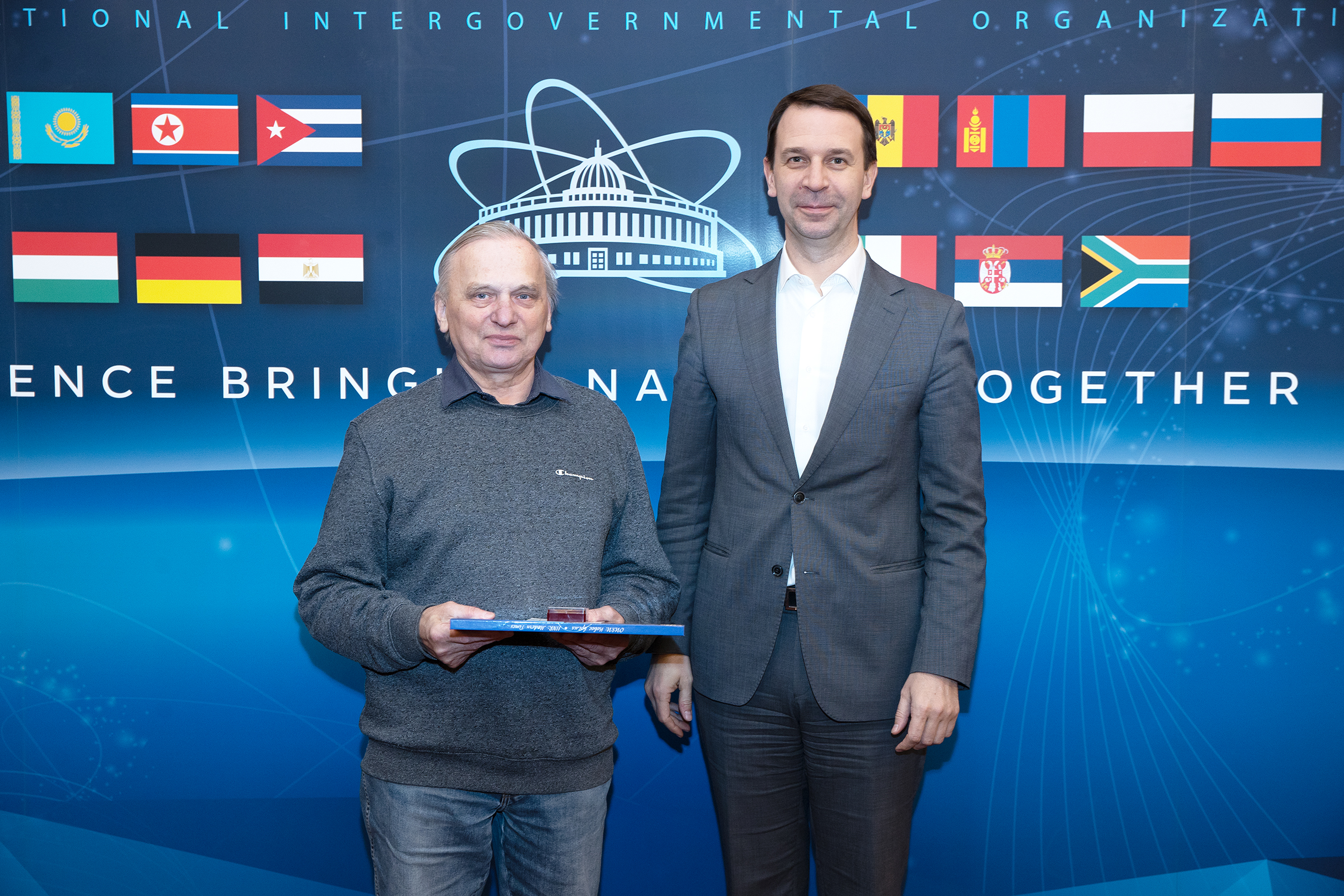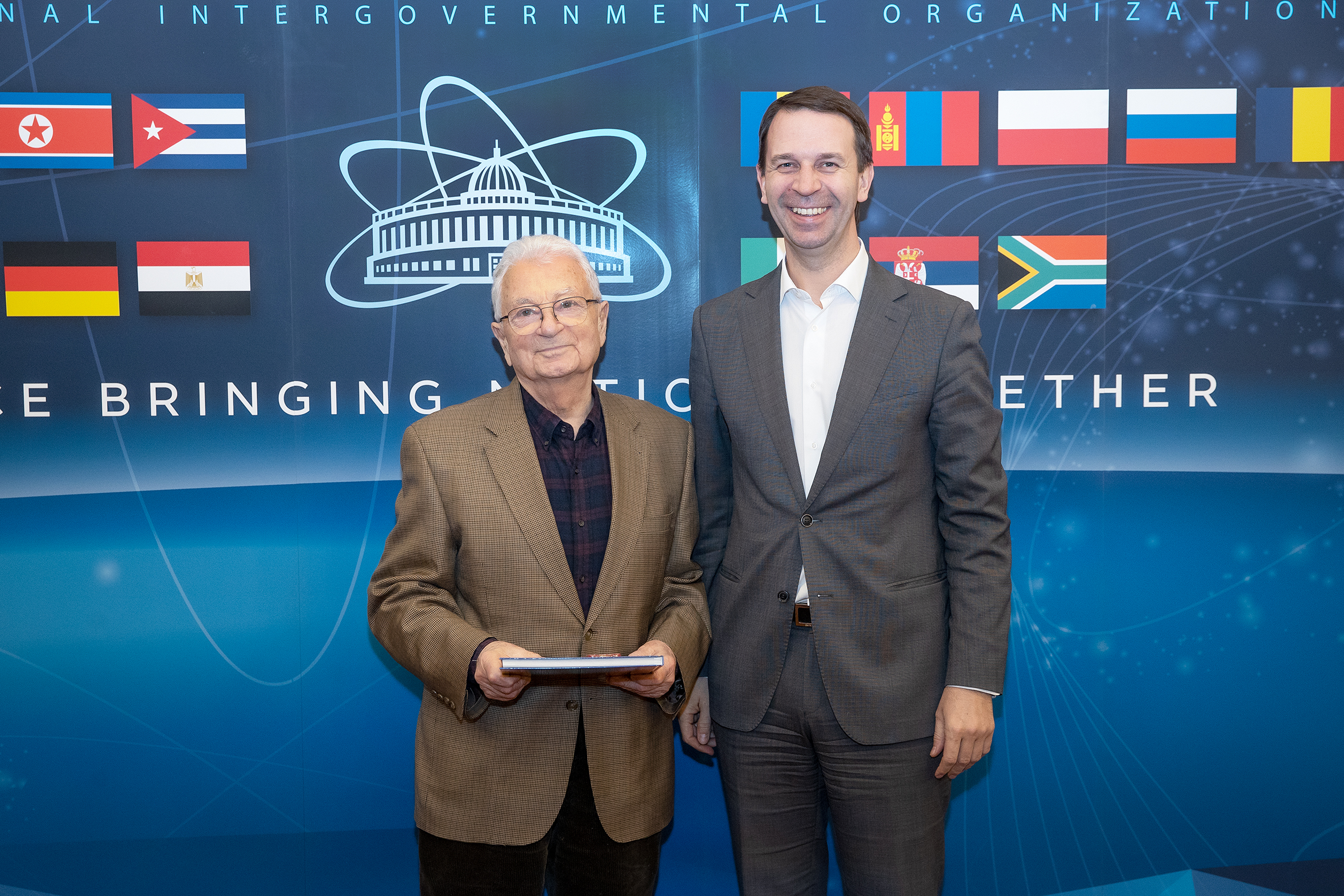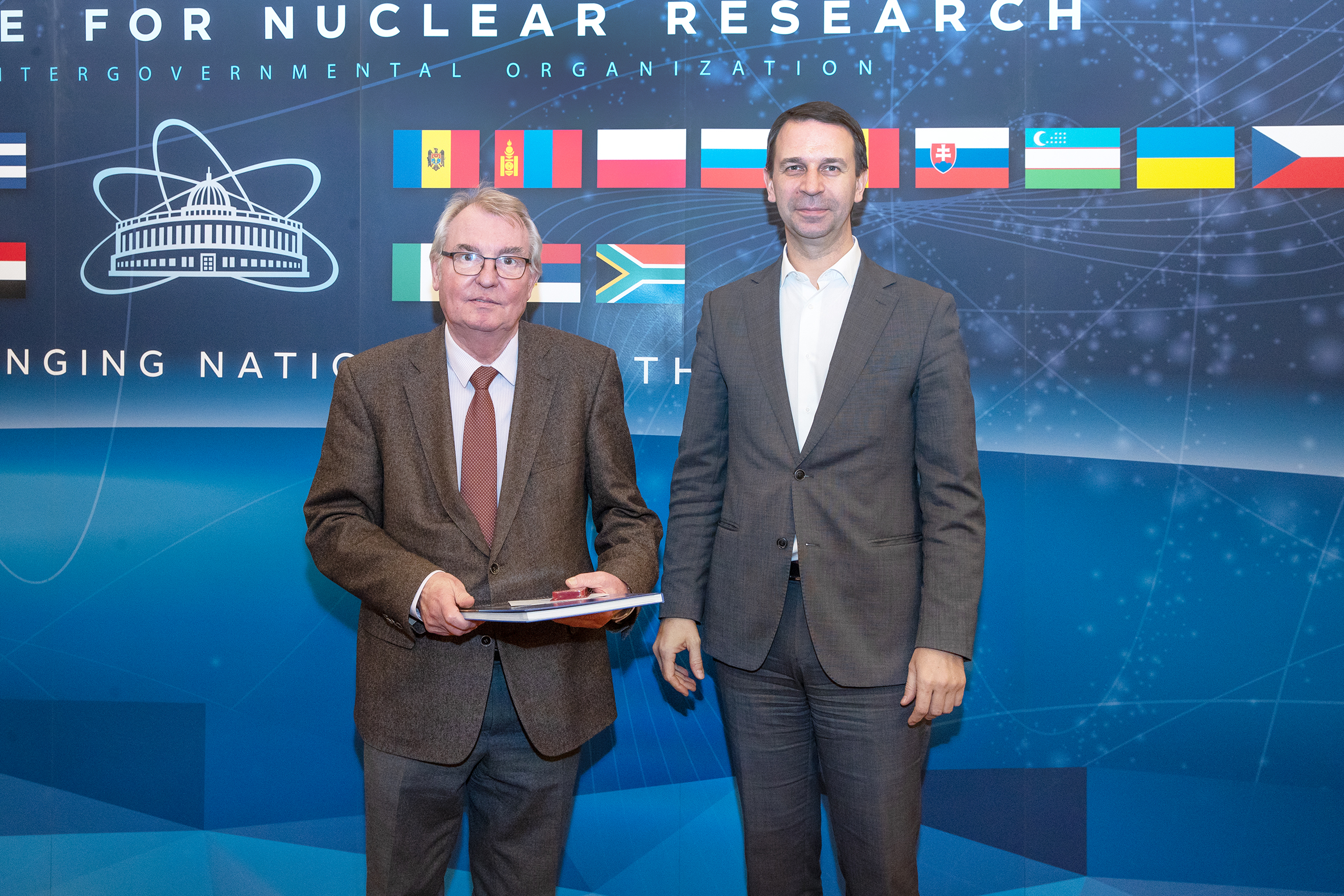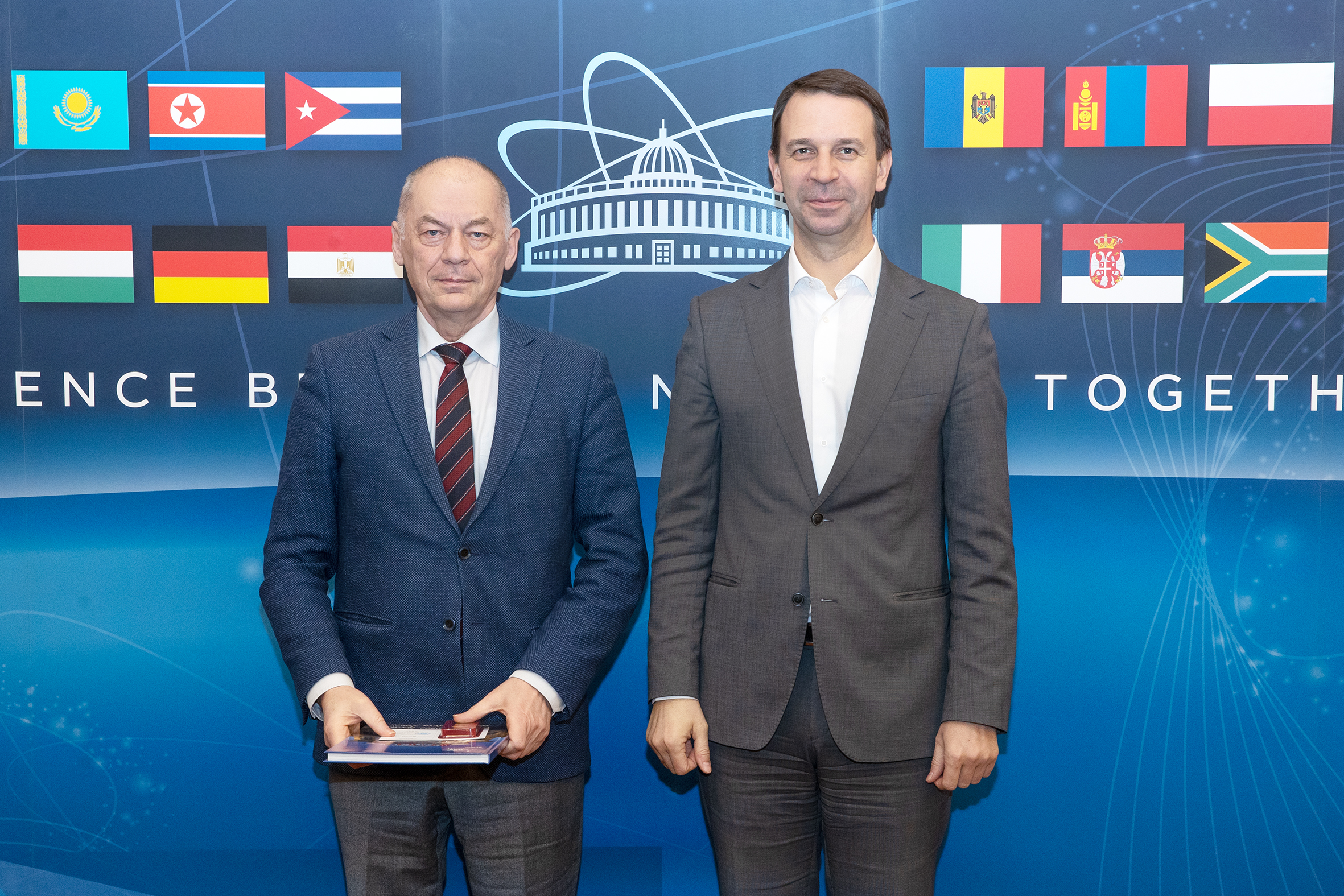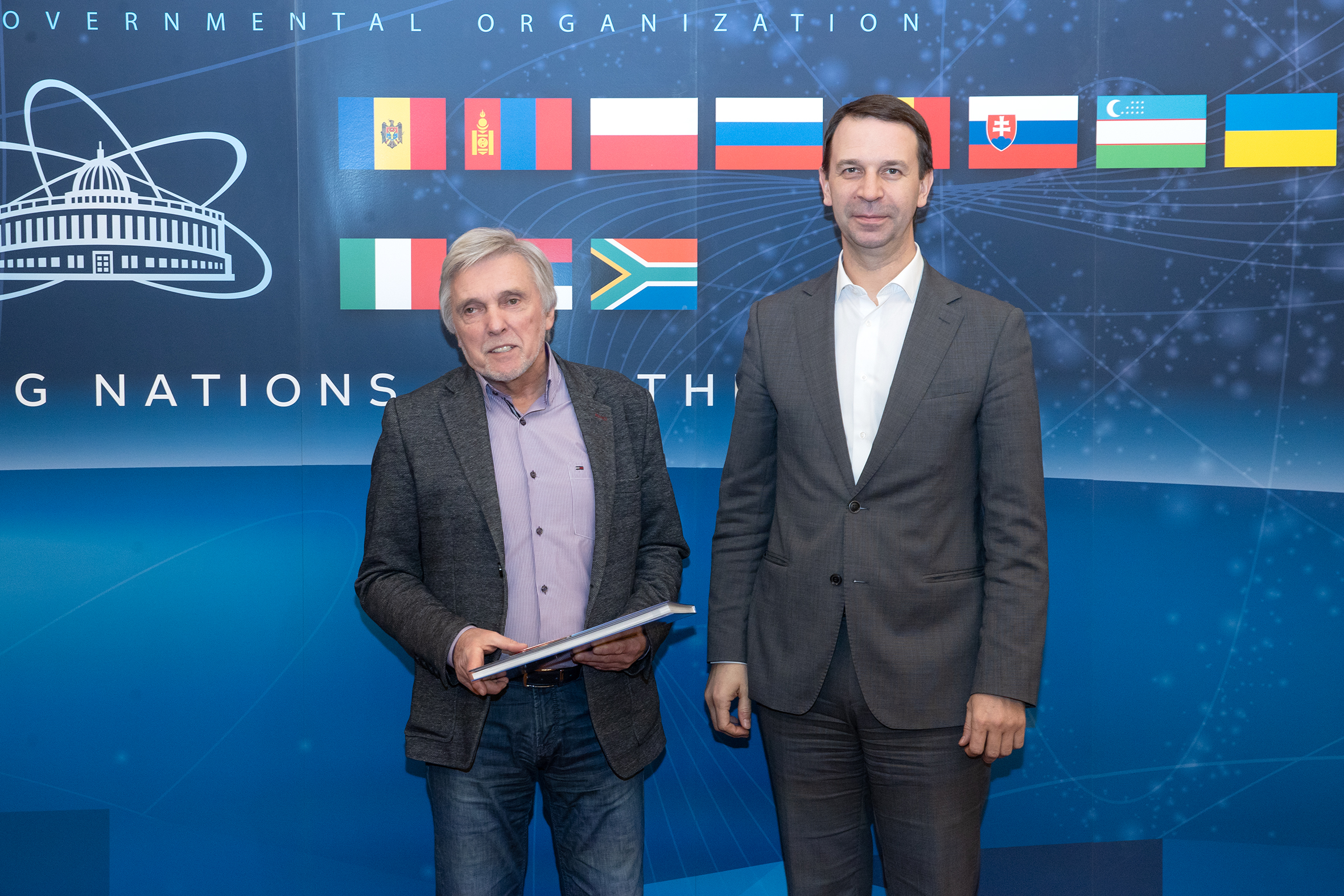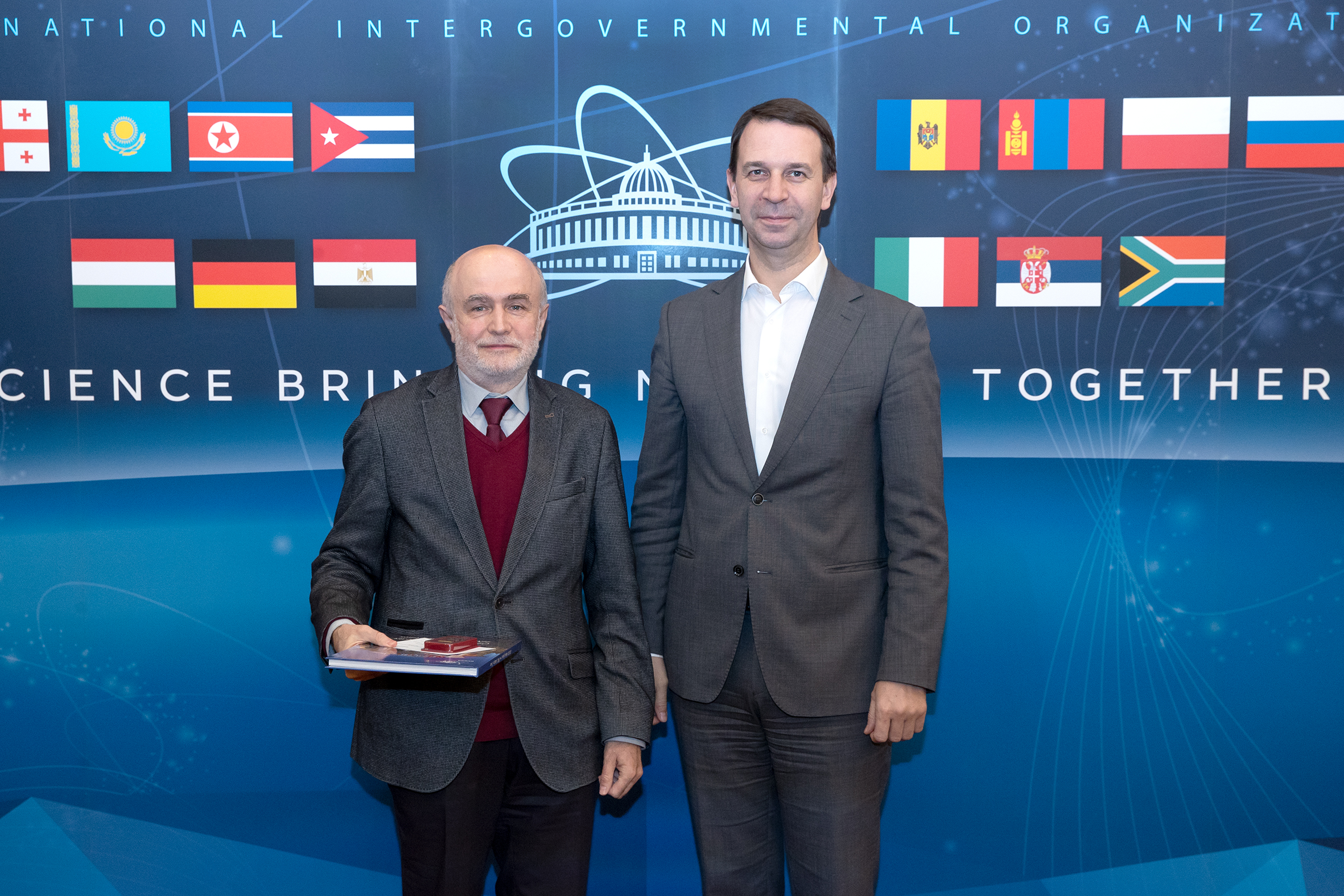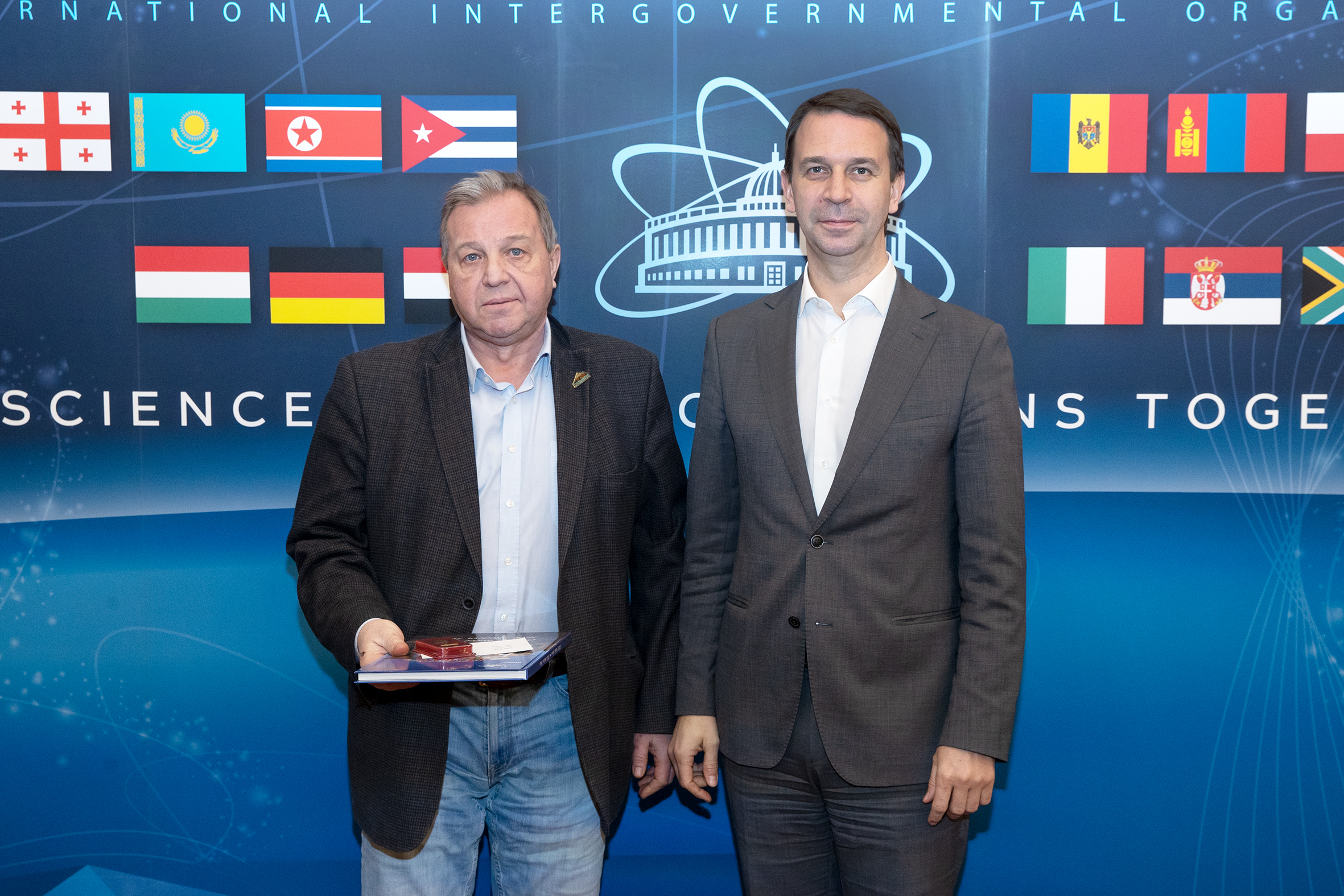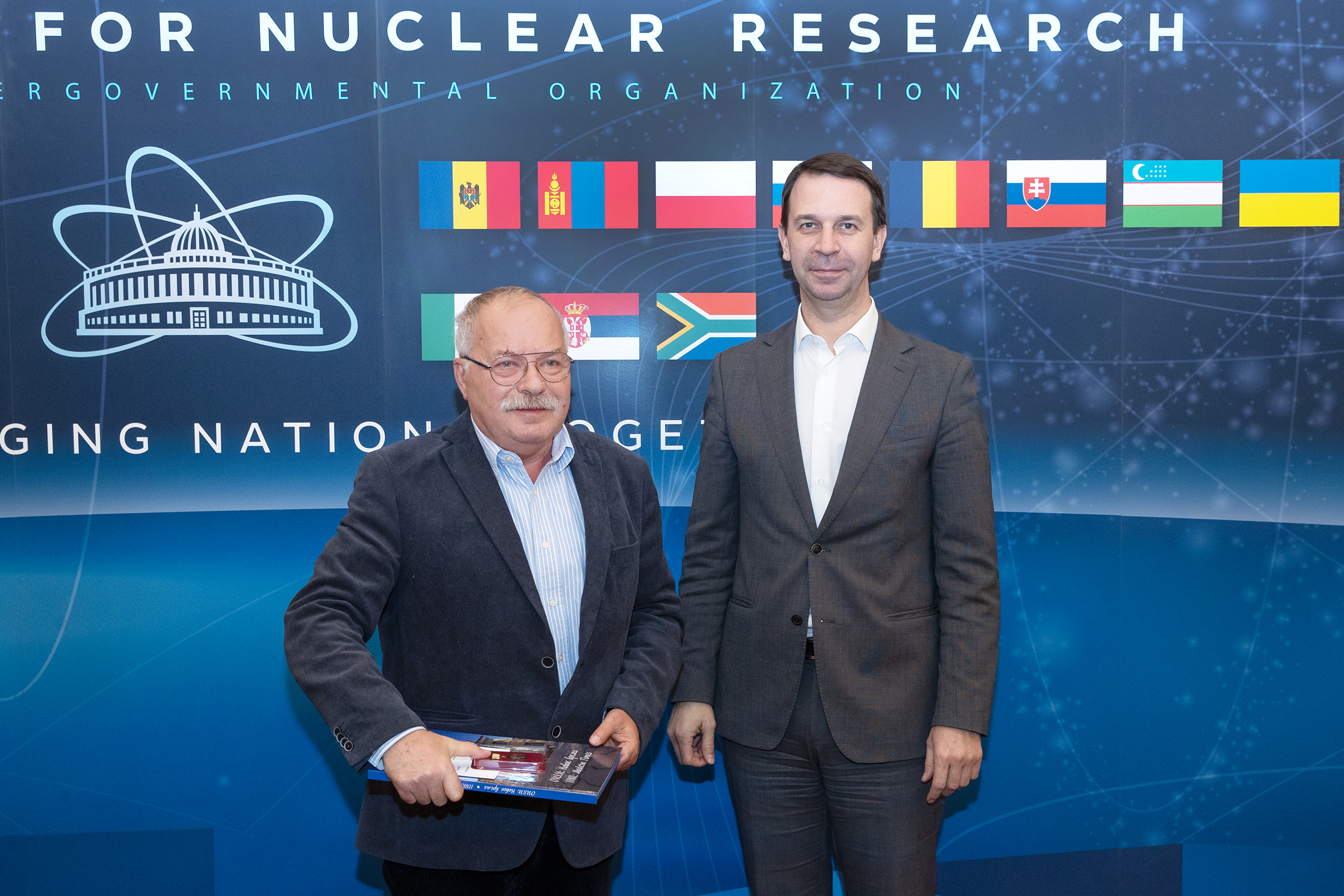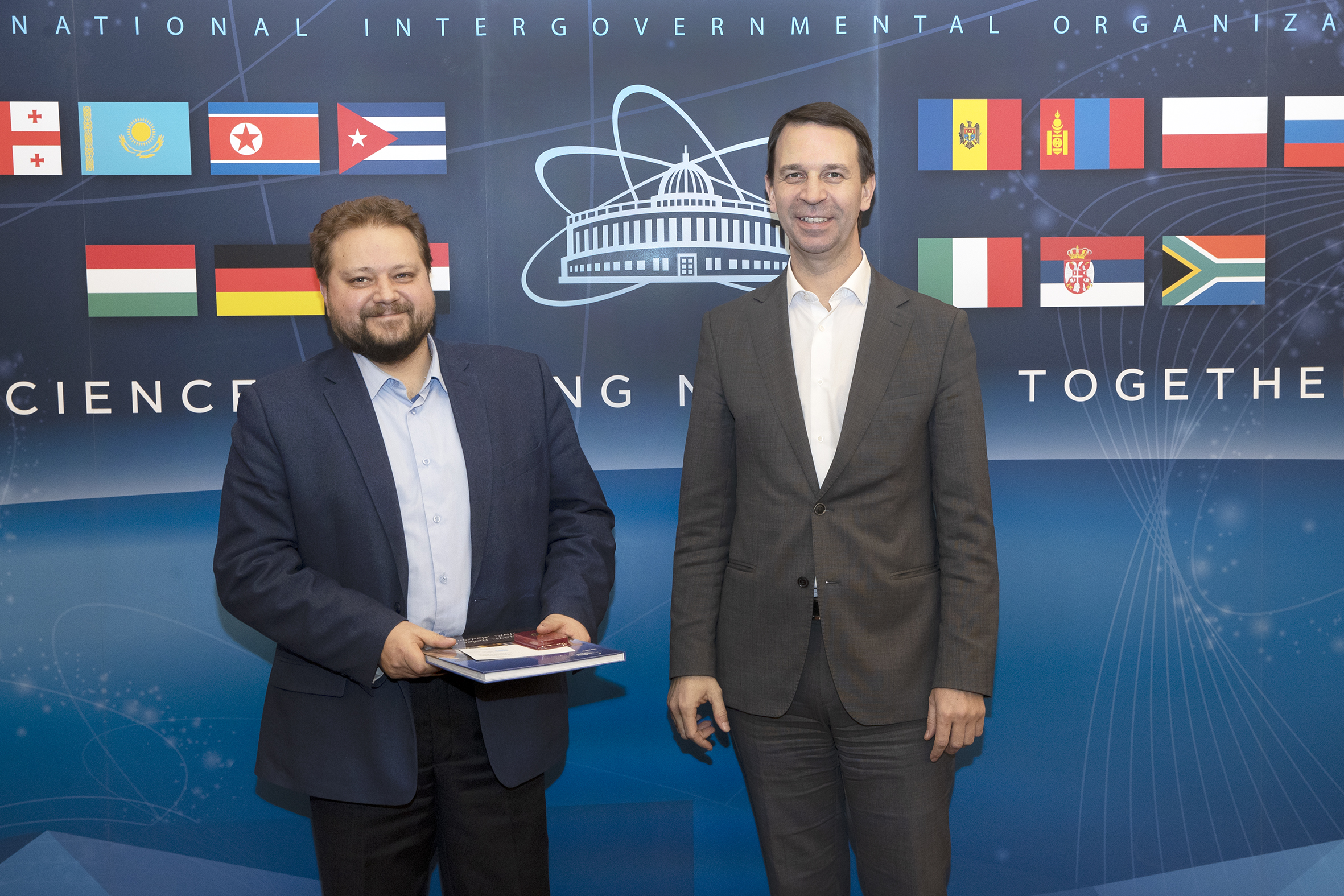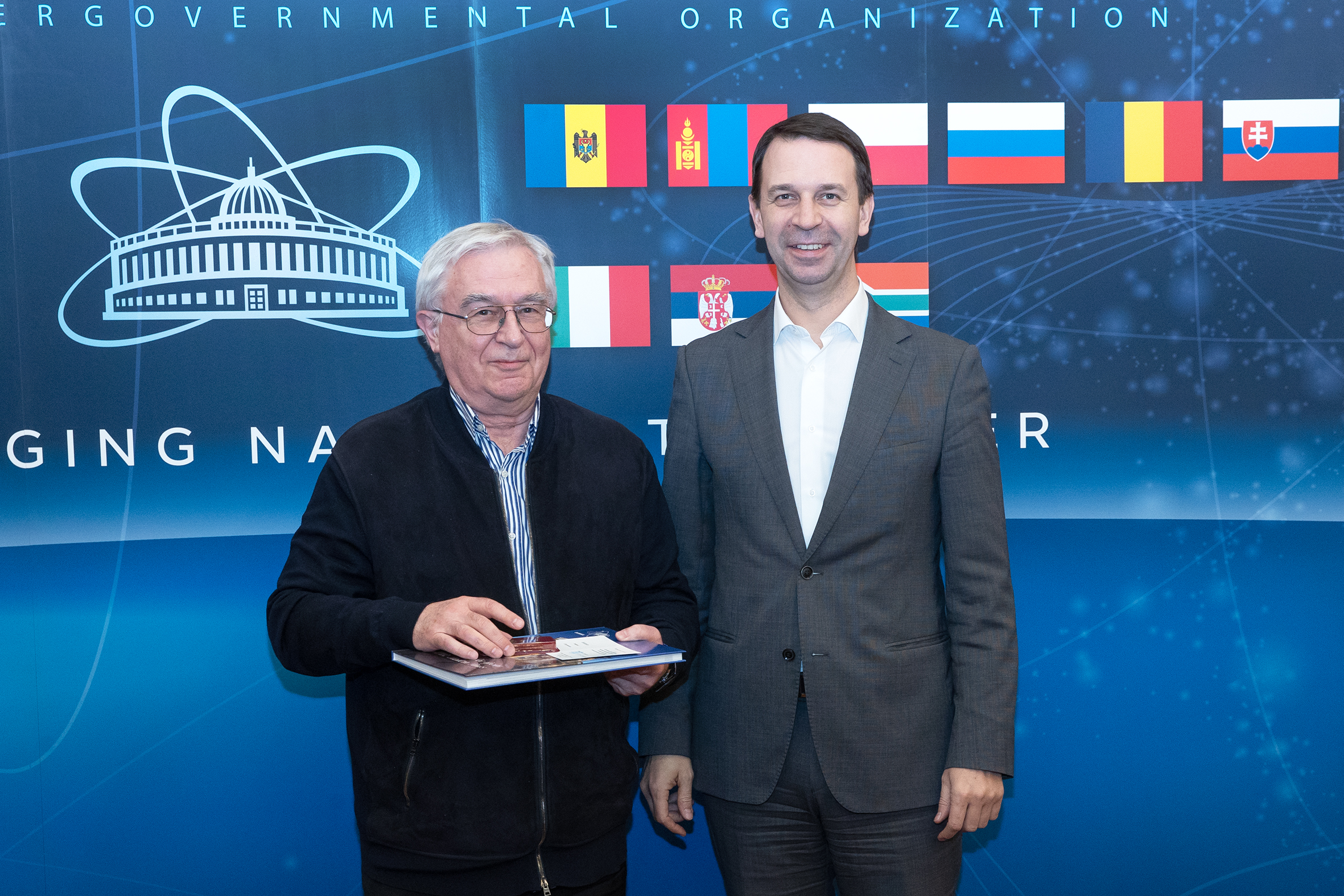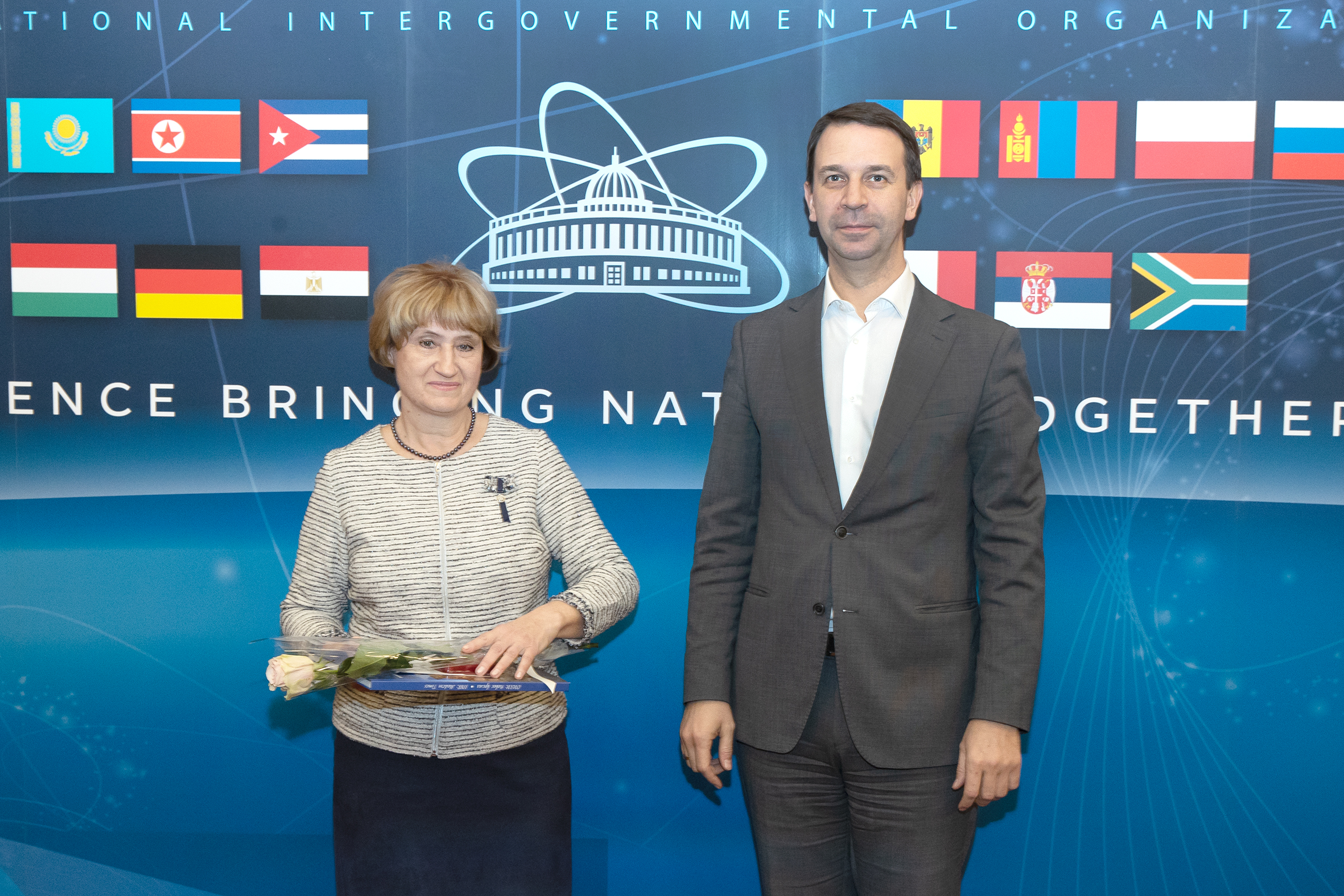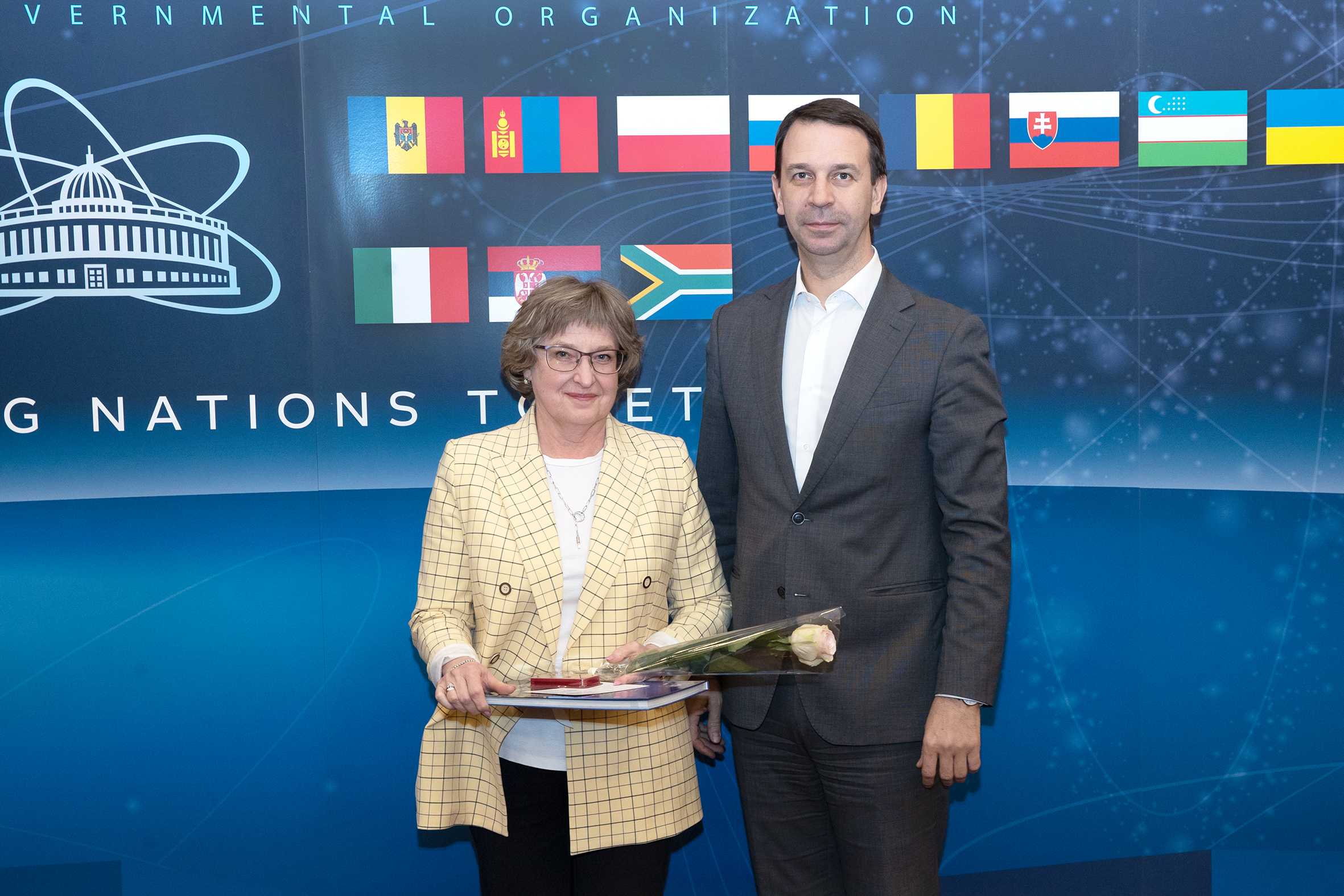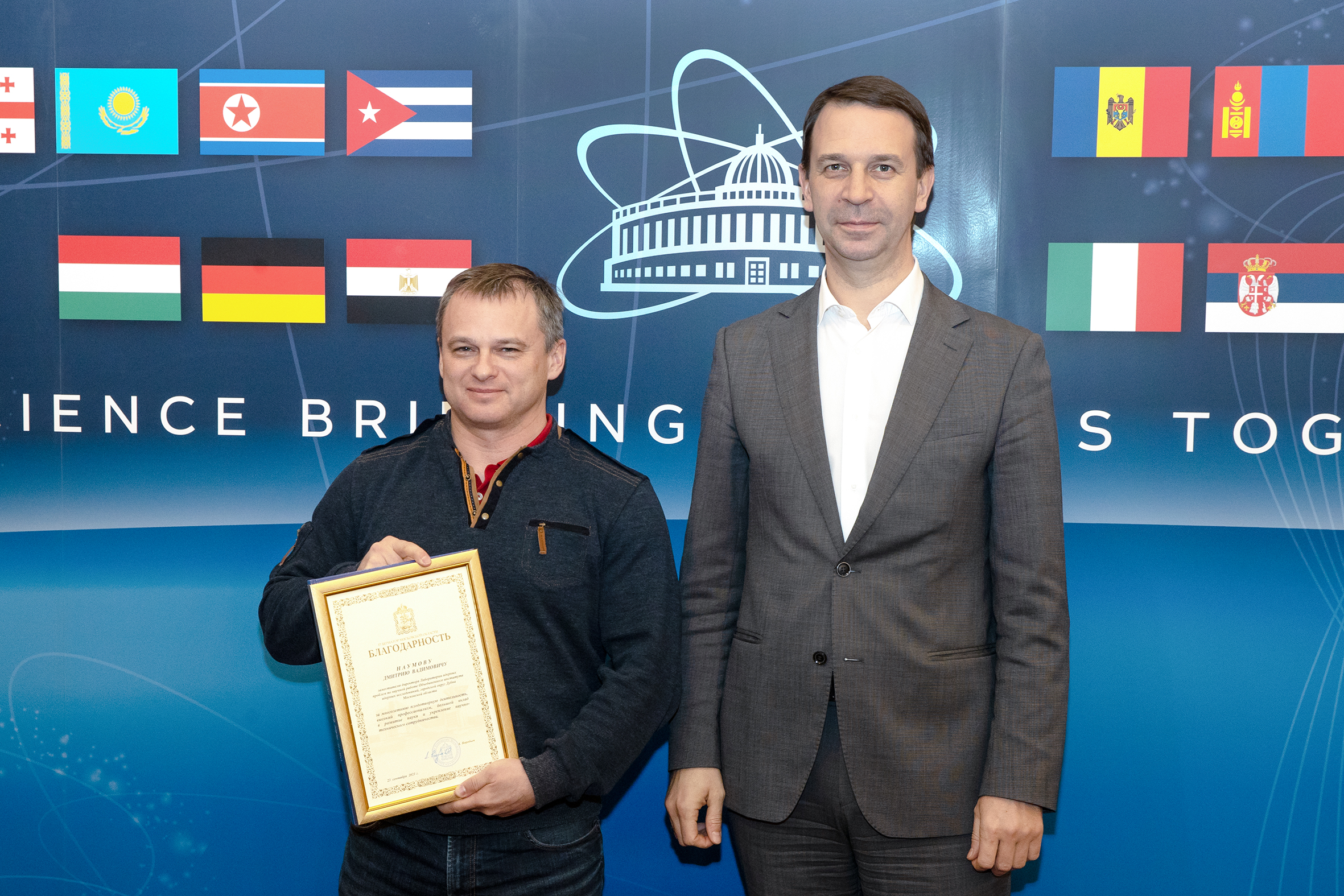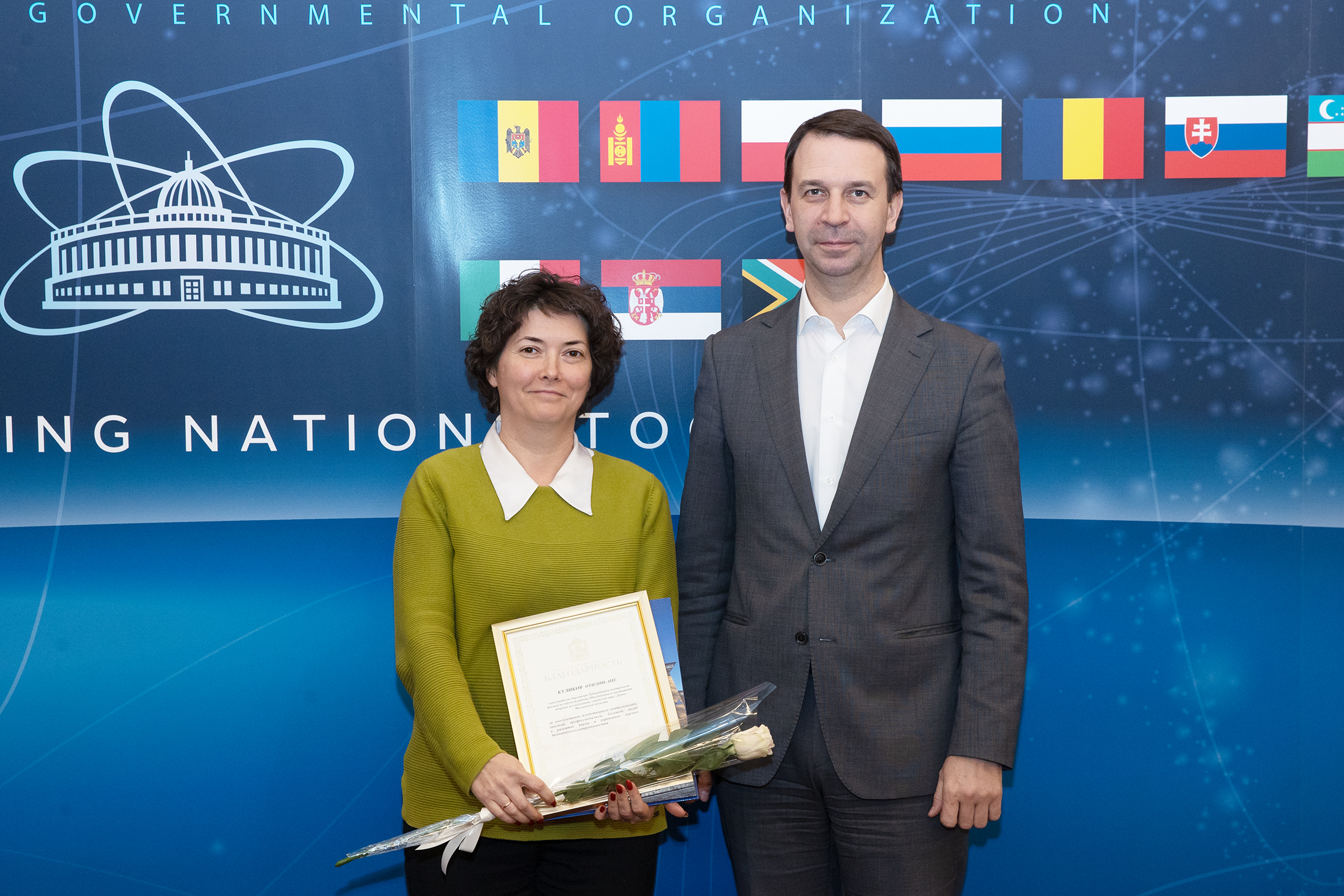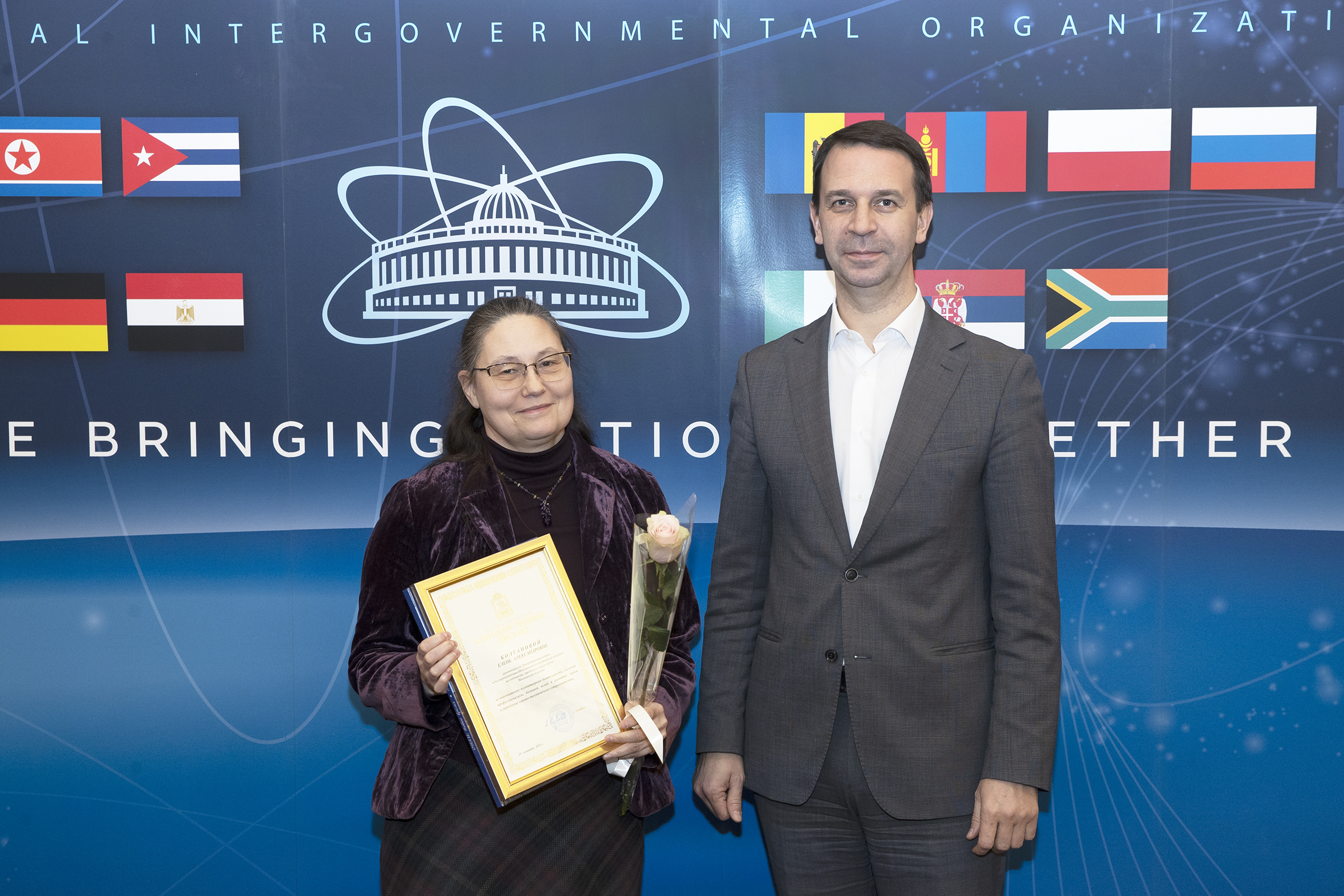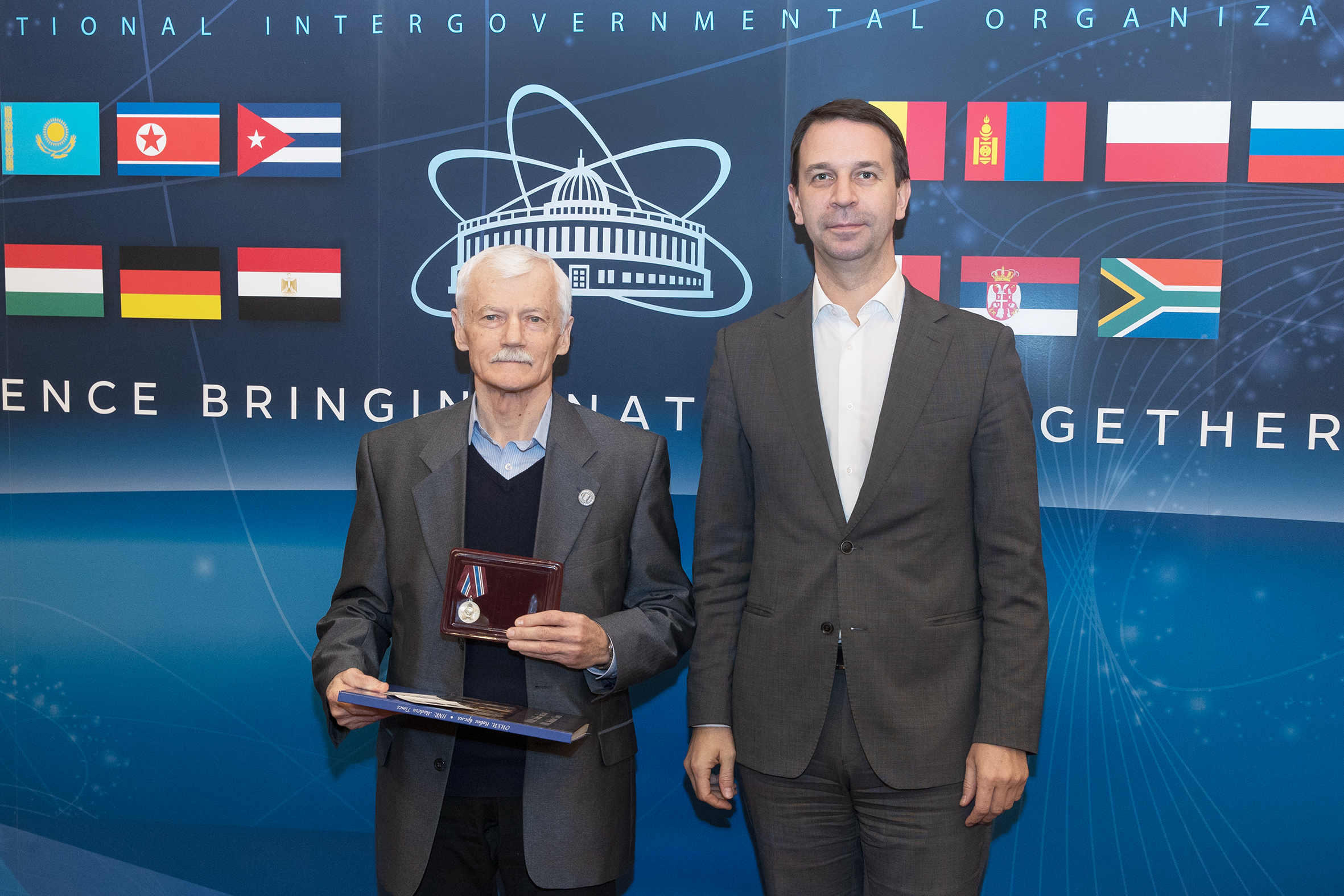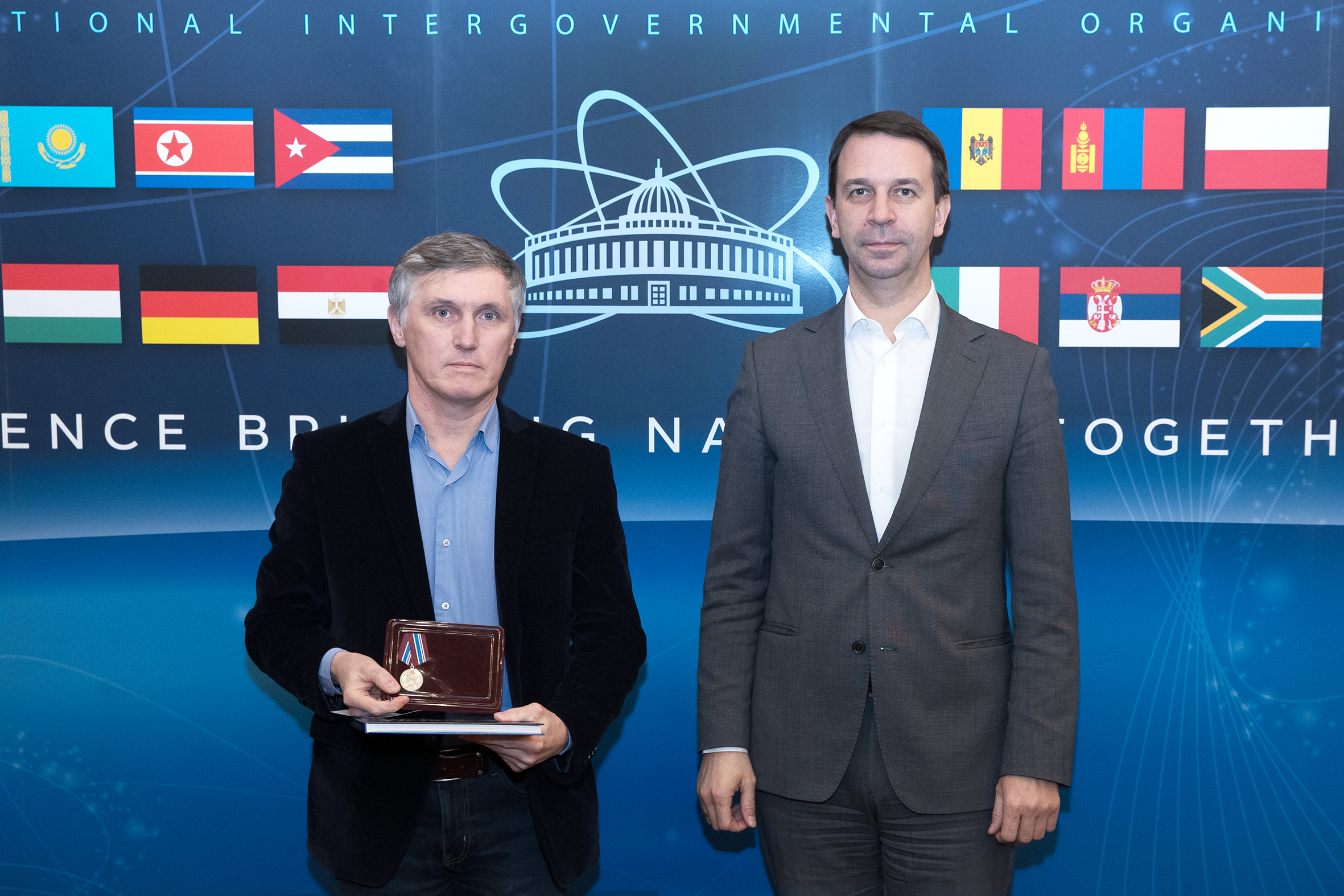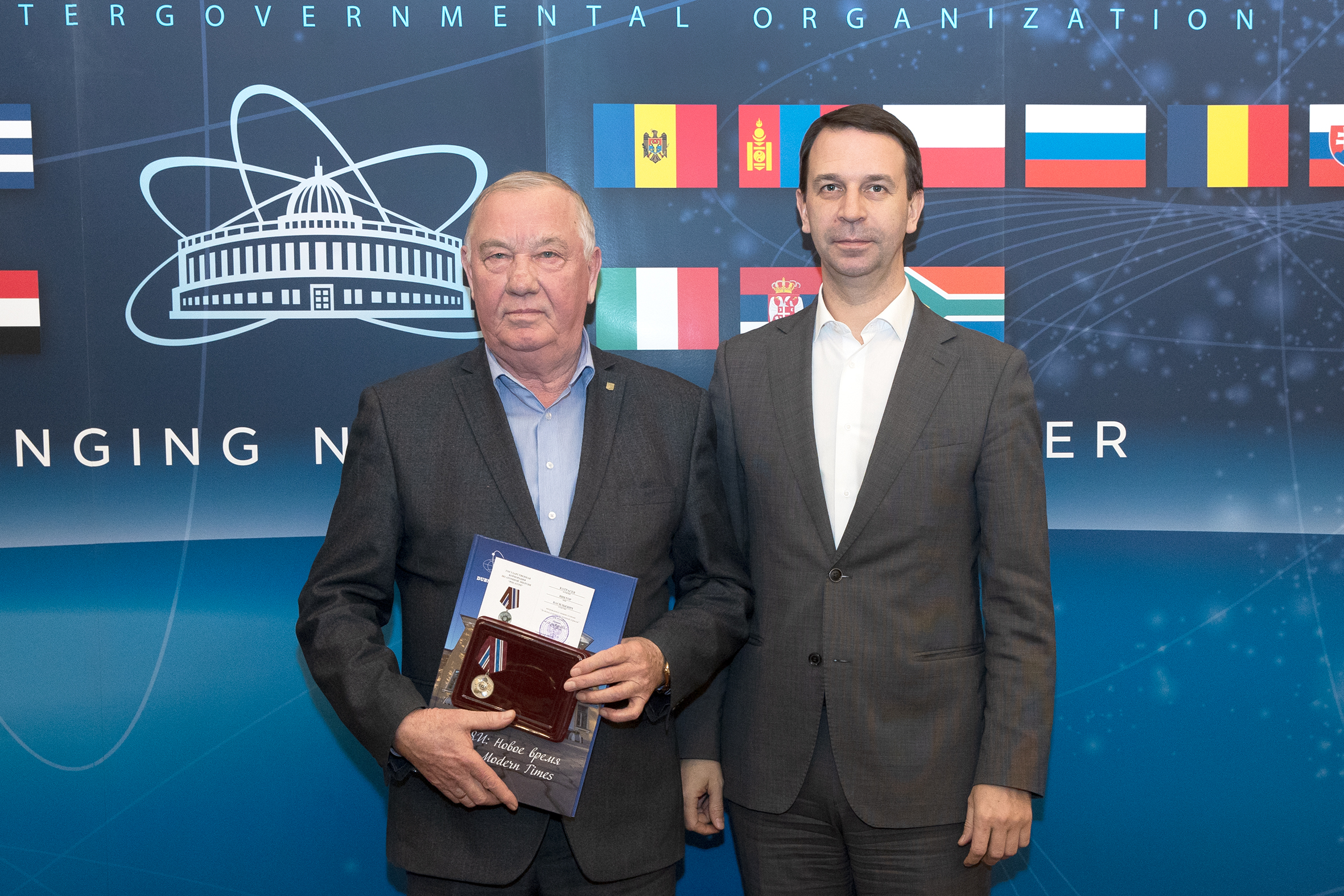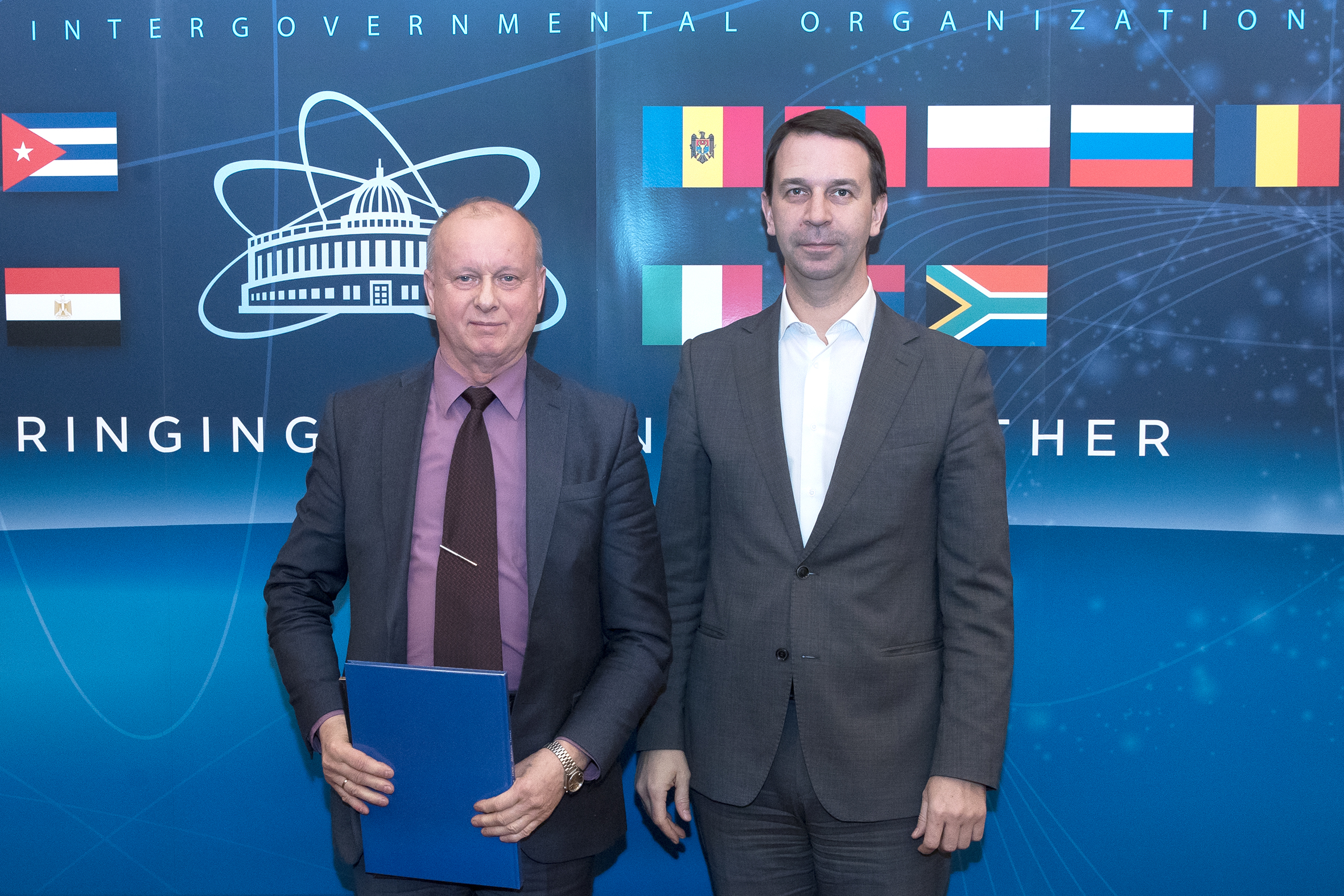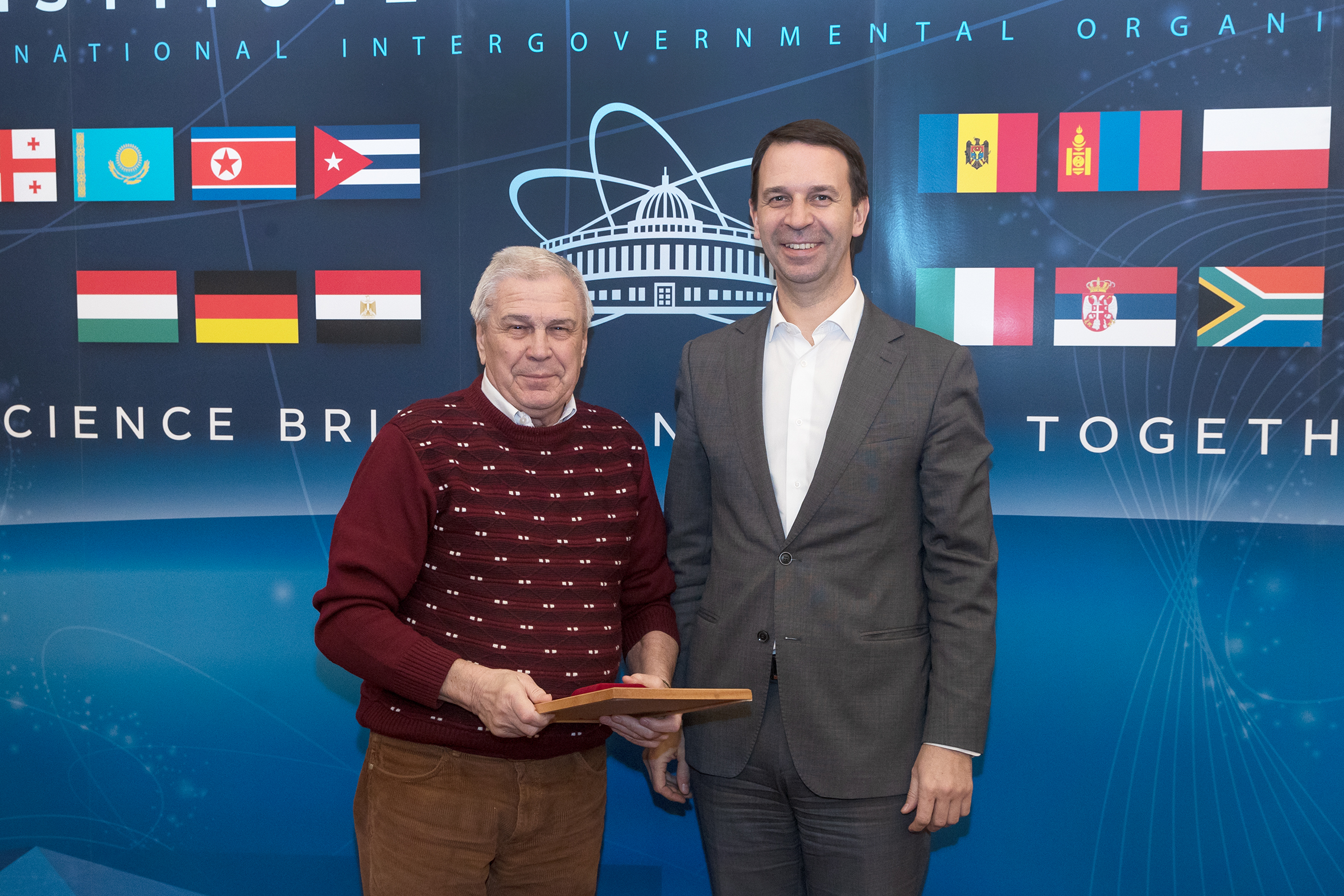STC JINR: scientific results and structure optimisation in 2021
News, 27 December 2021
On 23 December, results of the scientific year at the Institute were summed up at a joint meeting of the JINR Science and Technology Council and the Institute’s Directorate. Participants discussed plans and goals of JINR, including long-term ones. JINR Director RAS Academician Grigory Trubnikov in his report spoke about the brightest scientific results attained in 2021 by each of the Institute’s laboratories, as well as about the ongoing and upcoming changes at the Institute.
The JINR Director noted that the Laboratory of Theoretical Physics managed to derive the most general formula allowing to get renormalization group equations in an arbitrary generalization of the Standard Model without the need for explicit calculation of millions of Feynman diagrams. Specialists of the Laboratory of High Energy Physics extracted a beam of iron ions from the Booster of the NICA complex and accelerated it up to the designed parameters of the accelerator (about 600 MeV/nucleon) in September during the commissioning. Scientists also successfully transported the beam through the Booster-Nuclotron channel. Experiments at the Superheavy Element Factory in the Laboratory of Nuclear Reactions have allowed multiplying the statistics in moscovium and flerovium isotopes production. Hundreds of events obtained at the Factory make it possible to study the properties of superheavy elements and get closer to the synthesis of elements 119 and 120. In March, the deep-underwater neutrino telescope Baikal-GVD – a flagship project of the Laboratory of Nuclear Problems – was put into operation. It has become a part of the global network for neutrino astrophysics. Two more clusters of the telescope are being prepared for installation. The Laboratory of Neutron Physics is conducting studies on biohybrid nanocomplexes for creating new-generation drugs for targeted drug delivery aimed to tackle antibiotic-resistant microorganisms or for them being promising in the fight against localised cancer tumours. The staff of the Laboratory of Information Technologies focused the efforts in 2021 on the development of the DIRAC platform that includes GRID technologies, cloud storage, the Govorun Supercomputer, and robotised data storage systems. The Laboratory of Radiation Biology presented preliminary results in the creation of composite materials to protect space crafts shells and cosmonauts spacesuits from space radiation. The JINR University Centre held many training programmes and internships. The JINR Director paid special attention to the cooperation with the Sirius Educational Centre ( Sochi).
Speaking about the development of the JINR International Innovation Centre, Grigory Trubnikov said that on 23 December, a carbon beam with the energy of 3.2 MeV/nucleon was transported through the channel up to the target. “The SOCHi channel (Station Of Chip Irradiation) has been assembled and has started operating.” This means that the first stage of ARIADNA – the infrastructure for applied research at NICA combining ion beams transportation channels – has practically launched,” the JINR Director highlighted. He also noted that the project of the creation of the medical superconducting cyclotron MSC-230 had been approved.
The Institute reached the publication level exceeding that of the pre-pandemic period. In 2021, 17 candidate’s (two more accepted for defence) and six doctoral dissertations were defended. Nevertheless, limitations caused by the coronavirus pandemic partially prevented the Institute from fully implementing its plans. Suppliers, mainly foreign, are not always able to deliver expensive equipment to JINR on time. Sometimes they cannot come themselves to unpack and assemble facilities’ systems, which is necessary to preserve the warranty on the products received.
The JINR Director highlighted in his report the reorganization of the structure of the Institute’s Management Department. In particular, it was divided into the Management Department itself with separate departments and offices in its structure. The Licensing and Intellectual Property Department was created in the Chief Engineer Office.
The regulations on associated personnel and on research interns were approved. The Institute now faces the task of attracting more than a thousand associate staff members.
Now the transition is underway to a more advanced model of salary formation, optimisation of travel expenses. Digitalisation of the Institute is actively underway. An electronic queue for submitting reports on business trips has been launched, which saves the working time of employees. “The speed of document approval has drastically changed in the past year and a half,” the JINR Director highlighted. He also added that the Institute gradually shifts to electronic signing of documents.
Grigory Trubnikov noted that great attention was paid to save the health of the staff. “We have a good dynamics in terms of COVID-19, it is negative,” he said. According to the new rules, the number of people with immunity against the virus is 4,300, i.e. 80 % of the Institute’s staff. The JINR Director outlined ambitious plans for a radical transformation of Medical Unit No.9. Until 2023, upon the agreement with the FMBA of Russia, it would become the top-level medical institution.
Another ambitious initiative was the decision to create a branch of the Moscow State University in Dubna with the support of JINR on the basis of the already operating SINP MSU.
In October, preparation started to draft a new Seven-Year Plan for the JINR Development in 2024 – 2030. The JINR Director highlighted that the draft of it should be ready for the next meeting of the Committee of Plenipotentiaries in March 2022.
Grigory Trubnikov highlighted the milestones of the November session of the CP JINR in Bulgaria the brightest of which, including for the entire Institute in 2021, was Egypt’s entry into full membership in JINR as a result of 12-year systematic work on cooperation enhancement.
Head of the International Cooperation Department Dmitry Kamanin continued the discussion of international issues in his report. He presented in detail organization and achieved results of international cooperation at JINR.
“One of the new effective tools for international cooperation development is the Working Group for Strategic Issues under the Committee of Plenipotentiaries that has been created after the CP session in March 2021,” he said. Documents developed by the Group – the Regulations on the JINR Flag and Associate Membership in JINR – were adopted at the November CP session in Bulgaria. Dmitry Kamanin noted that the Working Group makes it possible to inform countries about the processes occurring at the Institute and carefully prepare the decisions for which there is not enough time at CP sessions. Moreover, this format allows increasing the involvement of the Member States in solving important issues.
“We can illustrate this involvement, the strategic approach using the example of cooperation development with Vietnam,” the Head of the International Cooperation Department cited the facts. “One of the formats of work we have with some countries that would be great to spread is regular meetings in the format of coordination committees on cooperation. Such a committee on JINR-Vietnam cooperation started operating in March 2021. Upon the decision of the CP, we are in for creating a joint laboratory related to the fulfilment of the scientific programme of the reactor under construction by the Rosatom State Corporation not far from Ho Chi Minh City. In this regard, a strategic approach to planning joint work is necessary. In particular, this Coordination Committee has decided to establish a permanent working group between the Laboratory of Neutron Physics and VINATOM.
Dmitry Kamanin called the JEMS training programme another significant part of the JINR international work. It provides visible practical results. Thanks to vigorous efforts on developing JINR-Egypt contacts, including on the JEMS platform, Egypt has received a status of a full-fledged Member State of JINR. Nowadays, Serbia is preparing to join the community of full Members of the Institute. Moreover, the Chile-JINR committee and the Arab cluster in JINR have been created. Work with universities has significantly extended; a network of JINR Information Centres is under development in the Member States of the Institute. Information Centres do not only work independently but also start cooperating and exchanging experiences with each other.
Dmitry Kamanin noted that the JINR partner network had exceeded a thousand scientific organizations that year for the first time. Speaking about the plans for further enhancement of multilateral cooperation with JINR, he noted that the decision on partnership with the Institute is a sovereign decision of countries and interested organizations. At the same time, there is no doubt that the Institute may expect further growth of its partnership network based on the scientific projects of the laboratories, as well as the priorities and tools set out by the Strategic Plan of the Development of JINR.
Members of the STC supported the nomination of a senior researcher, Candidate of Physics and Mathematics Andrey Pikelner (BLTP) with his work “Multiloop calculations and their applications in various models of quantum field theory” for the 2021 competition for medals of the Russian Academy of Sciences with prizes in the nomination “Nuclear Physics” aimed to support young scientists of Russia for the best scientific works.
At the end of the meeting, a festive presentation of awards was held in connection with the 65th anniversary of JINR. 30 JINR employees received awards from the Ministry of Science and Higher Education of the Russian Federation, the Governor of the Moscow Region, the Rosatom State Corporation, as well as Honorary Commemorative Medals of JINR.
Awards of the Ministry of Science and Higher Education of the Russian Federation
For significant achievements in science and many-year dedicated work:
- The honorary title of “Honorary Worker of Science and High Technology of the Russian Federation” conferred to:
– Anatoly Balagurov, FLNP Chief Researcher
– Mikhail Ivanov, BLTP Сhief Researcher - The Medal “For impeccable work and honours” III degree awarded to:
– Yuri Oganessian, FLNR Scientific Leader
– Sergey Dmitriev, JINR Vice-Director
– Vladimir Kekelidze, JINR Vice-Director
– Alexander Ruzaev, JINR Assistant Director for Human Resources
– Alexander Sorin, VBLHEP Deputy Director for Science
– Valery Shvetsov, FLNP Director
– Grigory Shirkov, JINR Director Assistant for the Development of Biomedical Projects - The Medal “For contribution to the implementation of state policy in the fields of scientific and technological development” awarded to:
– Andrey Butenko, VBLHEP Deputy Director for Scientific Work
– Sergey Dotsenko, JINR Director Assistant for Financial Issues
– Alexander Malakhov, Head of the VBLHEP Scientific and Experimental Department of Heavy Ion Physics
– Alexander Olshevsky, Head of the DLNP Scientific and Experimental Department of Elementary Particle Physics
– Andrey Popeko, FLNR Deputy Director
– Nikolay Rusakovich, DLNP Chief Researcher
– Tatyana Strizh, MLIT Deputy Director for Scientific Work
– Lyudmila Tyutyunnikova, Deputy Head of the Human Resources and Records Management Department
– Lyubov Uvarova, Head of the Financial Planning Department
Awards of the Governor of the Moscow region
For longstanding fruitful work, high professionalism, a great contribution to the development of science and strengthening of scientific and technical cooperation:
- Thank-you note from the Governor of the Moscow region awarded to:
– Dmitry Naumov, DLNP Deputy Director for Science
– Otilia Ana Culicov, FLNP Deputy Director for Science - A Note of Acknowledgement from the Governor of the Moscow region awarded to:
– Andrey Dudarev, JINR Deputy Chief Engineer
– Elena Kolganova, Head of the Human Resources and Records Management Department
Awards of the Rosatom State Corporation
For longstanding dedicated work, significant achievements in professional activity, a great personal contribution to the development of science in the nuclear fields:
- The Badge “For international cooperation in the nuclear industry” awarded to:
– Igor Savin, VBLHEP Honorary Director - The Badge “Academician I. V. Kurchatov” III degree awarded to:
– Alexander Vinogradov, FLNP Chief Engineer - The Badge “For contribution to the development of the nuclear industry” II degree awarded to:
– Pavel Apel, Deputy Head of the Scientific and Administrative Division of the FLNR Centre of Applied Physics
– Andrey Dolgikh, FLNP Chief Engineer at IBR-2
– Victor Katrasev, JINR Assistant Director on Financial Issues
– Nikolay Shakun, Head of the Facility at the DLNP Scientific and Administrative Division “Phasotron Department” - The Certificate of Honor of the Rosatom State Corporation awarded to:
– Nikolay Stepanov, Head of the Security Office - The Honorary Medal of JINR for longstanding dedicated work and professionalism awarded to:
– Dmitry Kamanin, Head of the International Cooperation Department
– Boris Starchenko, Head of the Scientific Information Division of the Service of the Chief Scientific Secretary of JINR.

